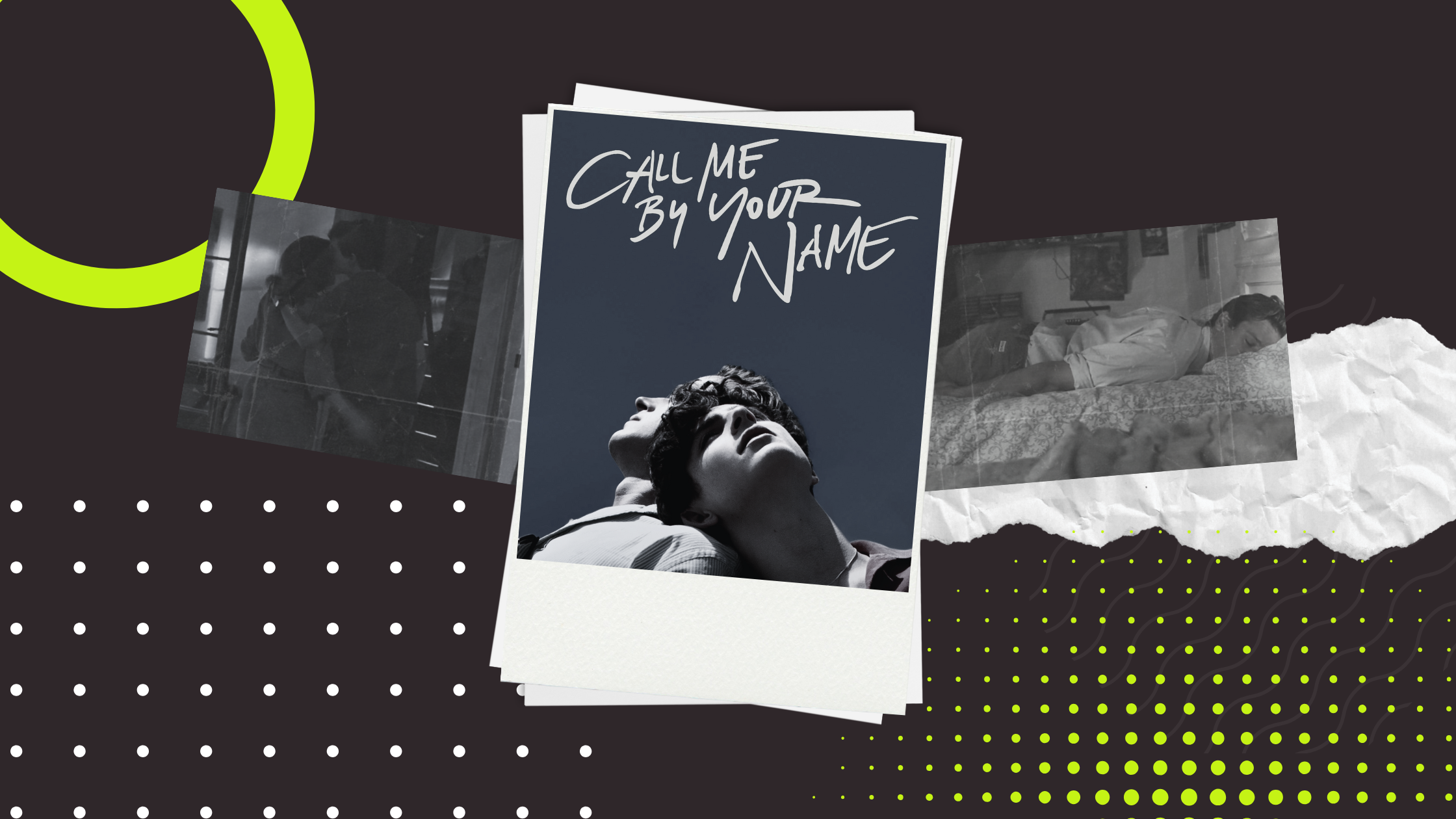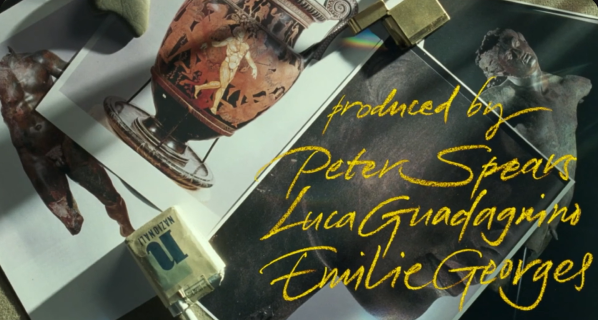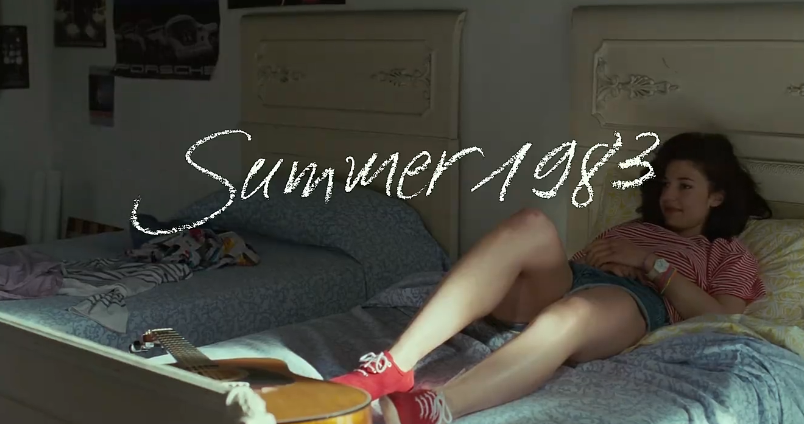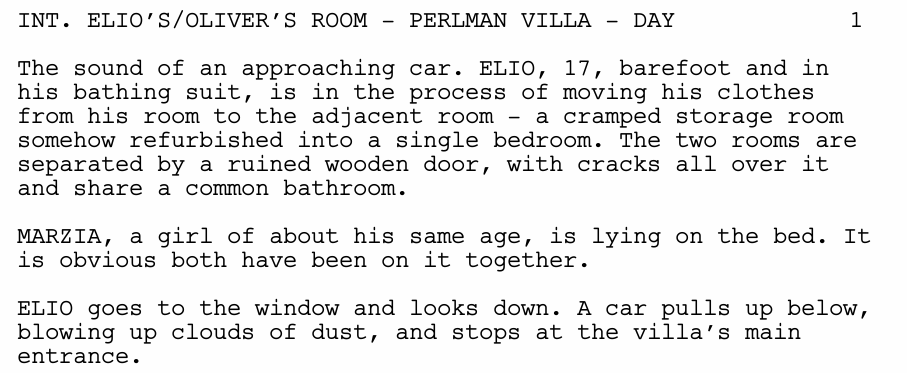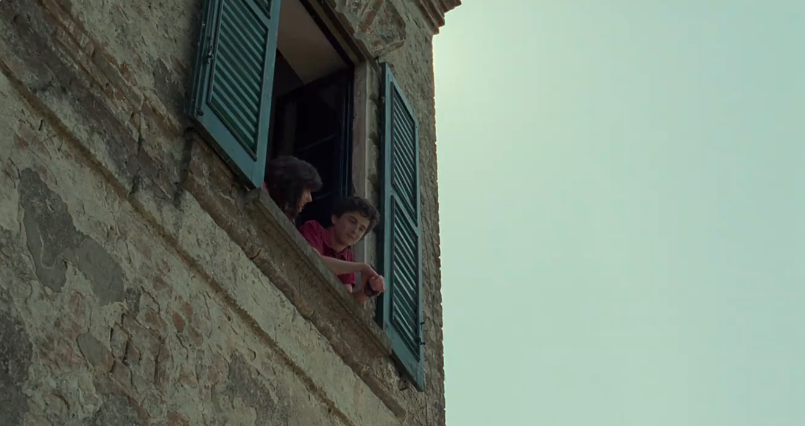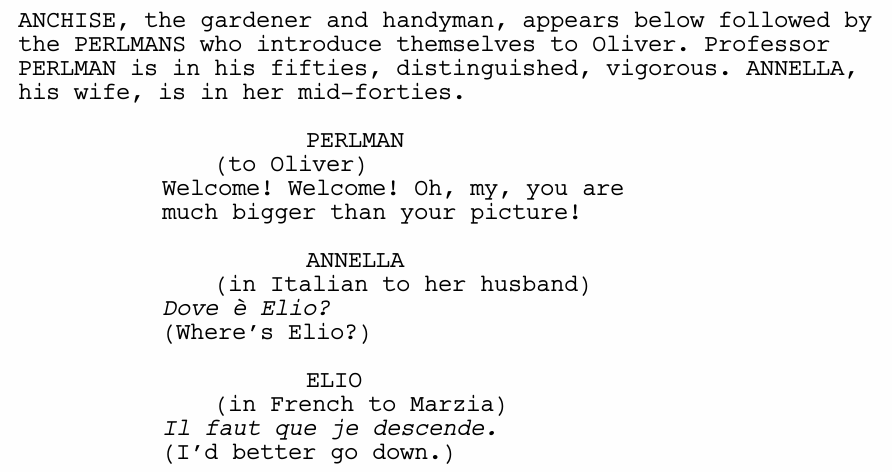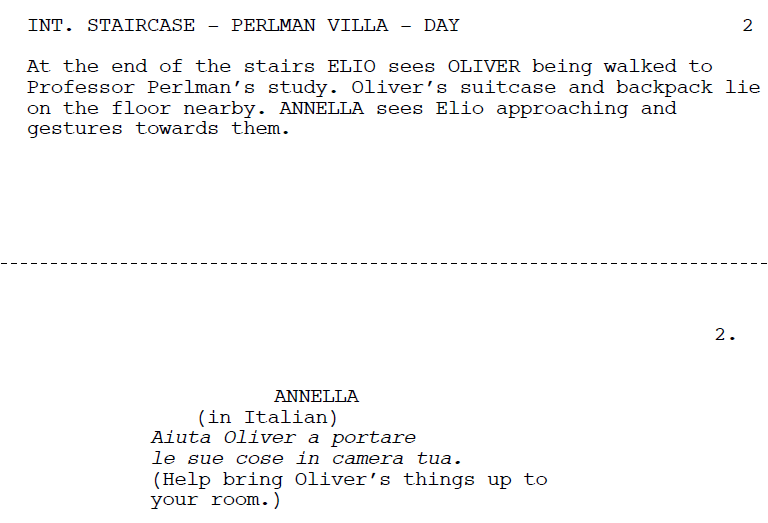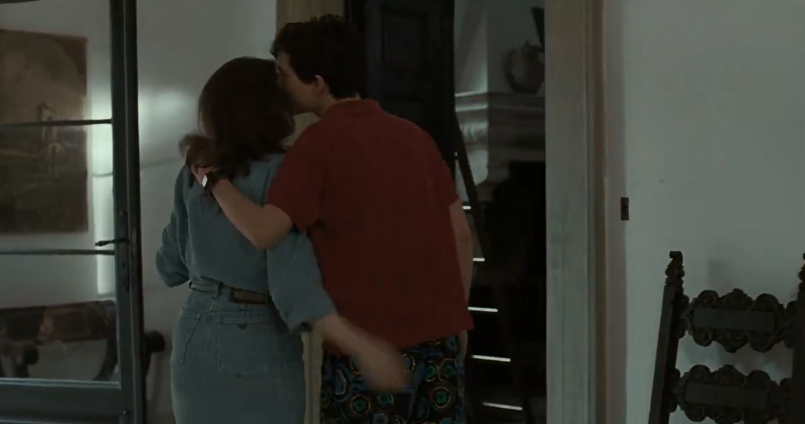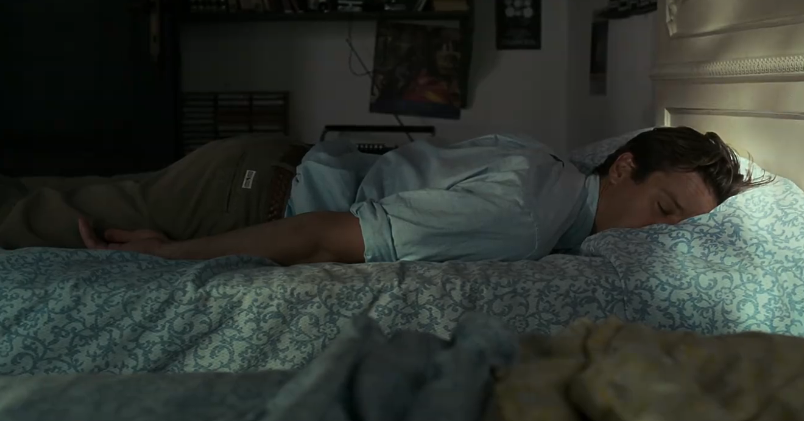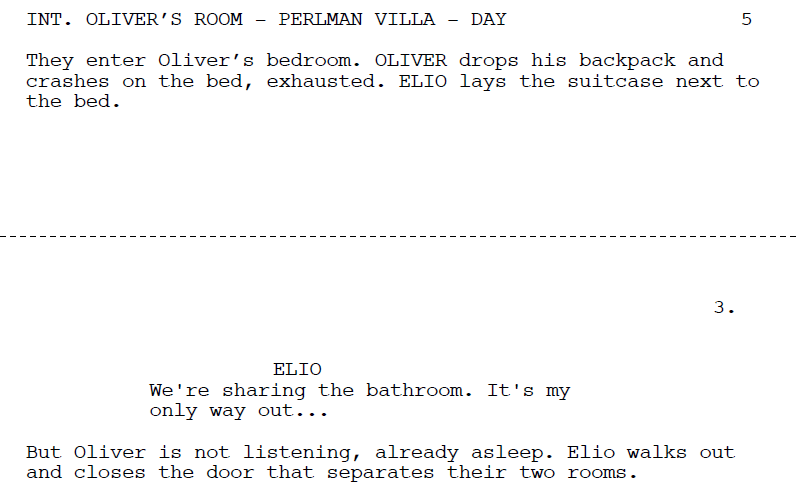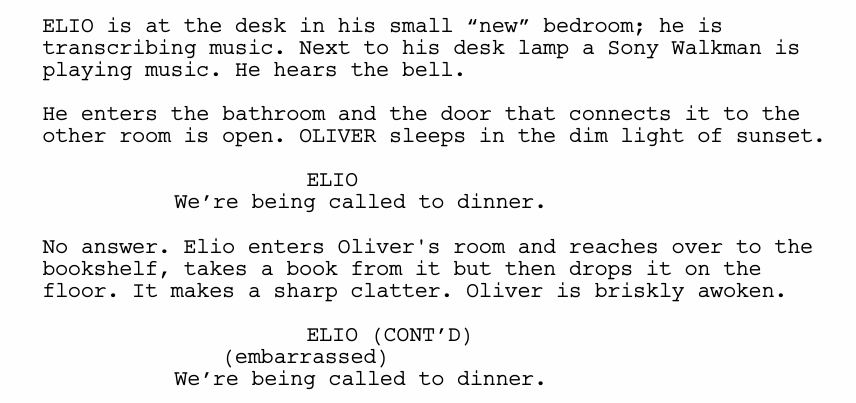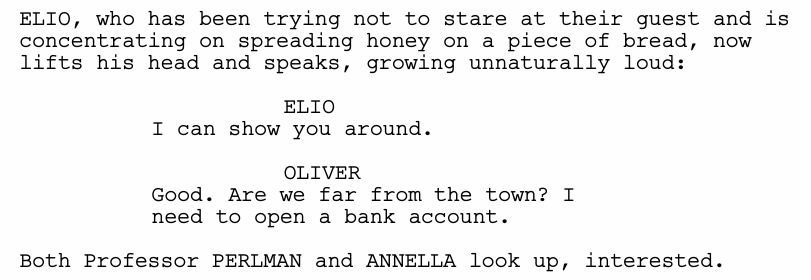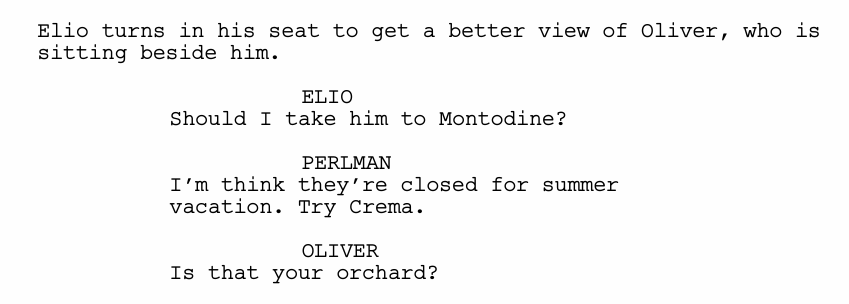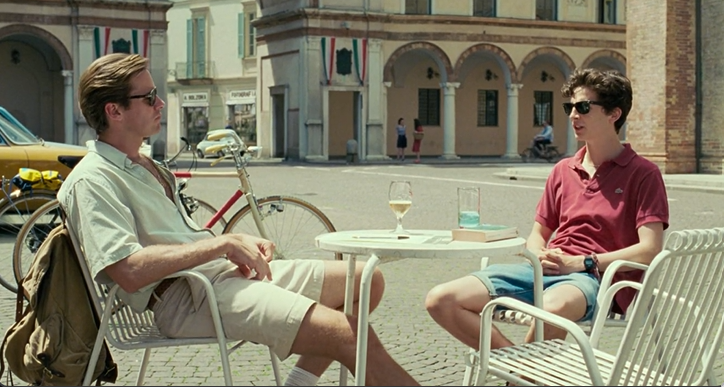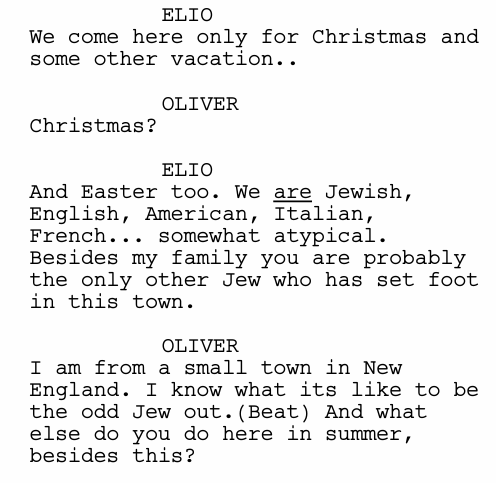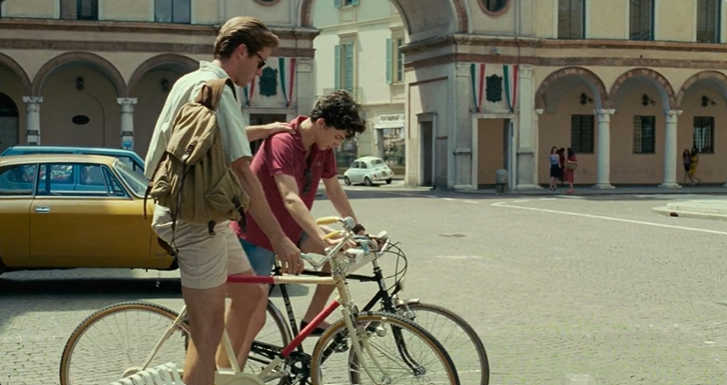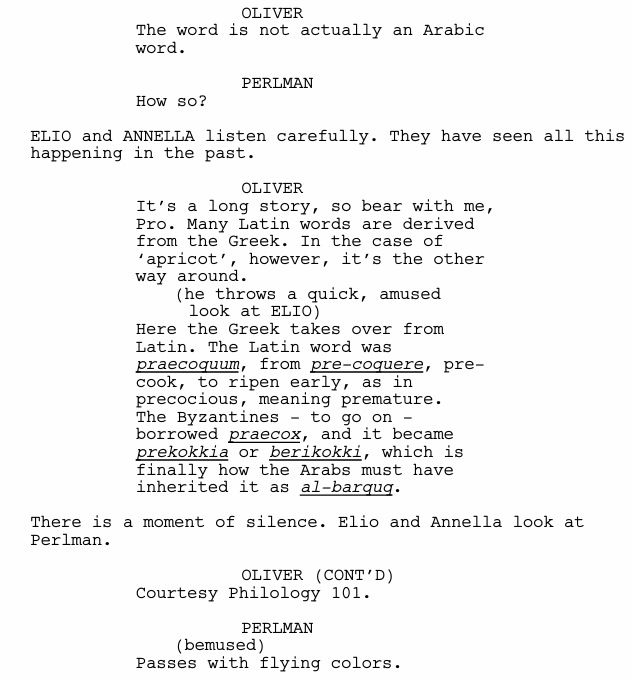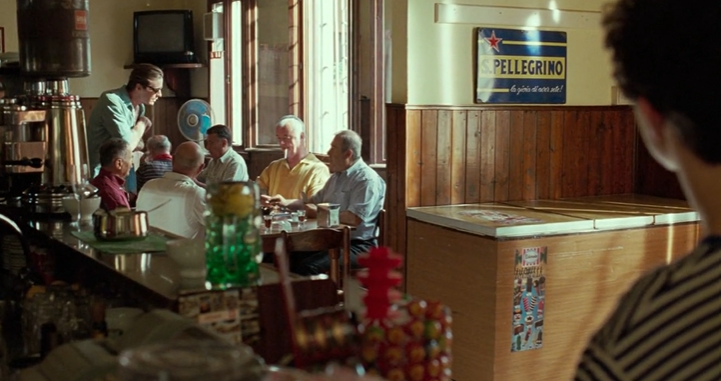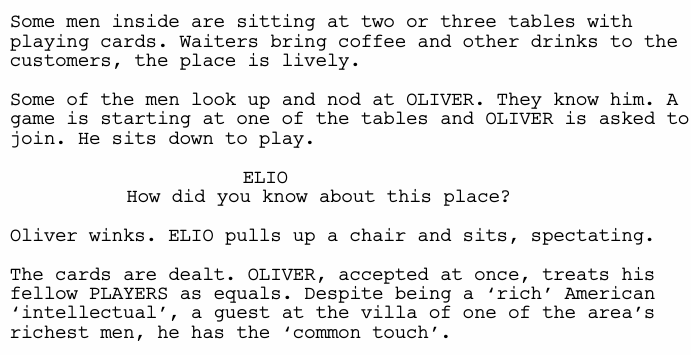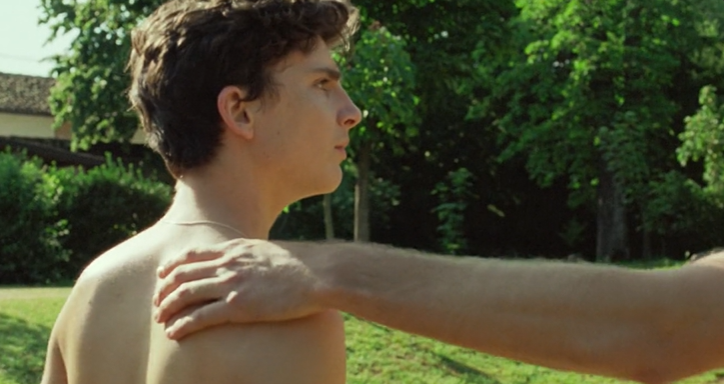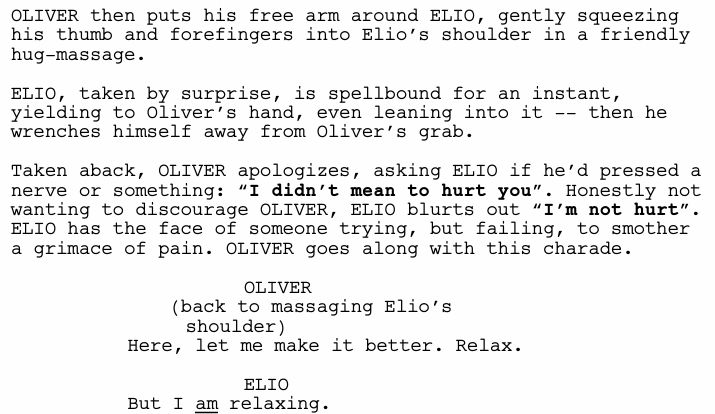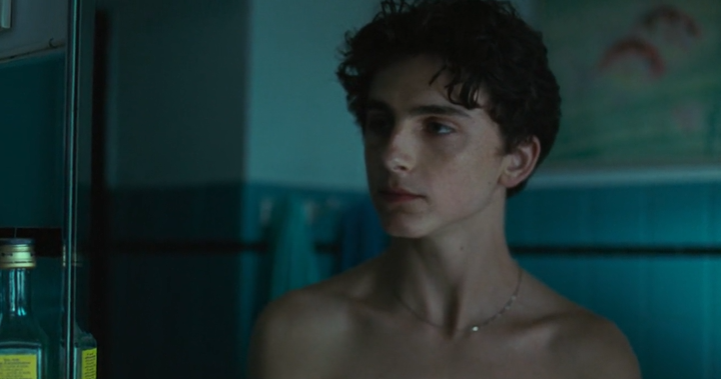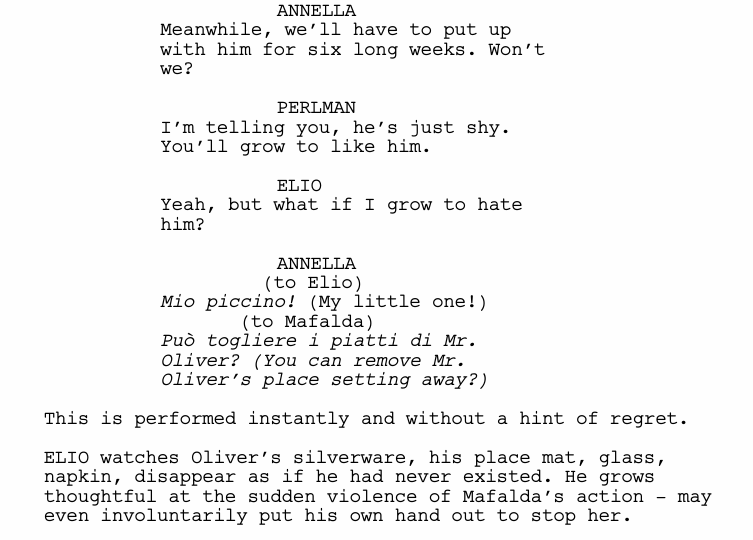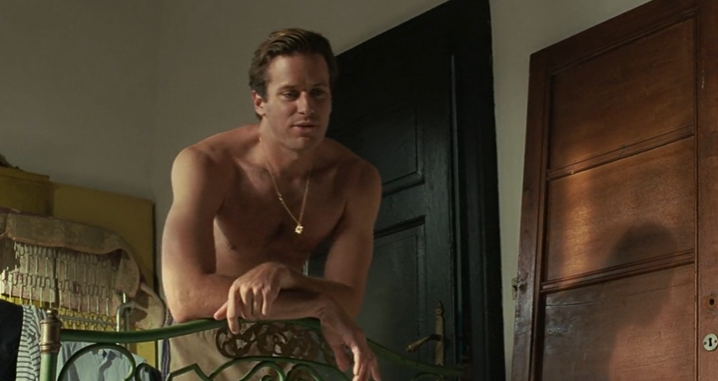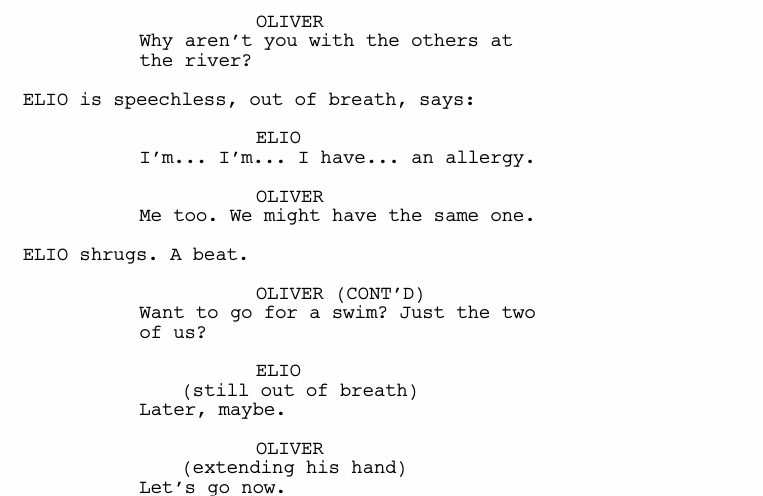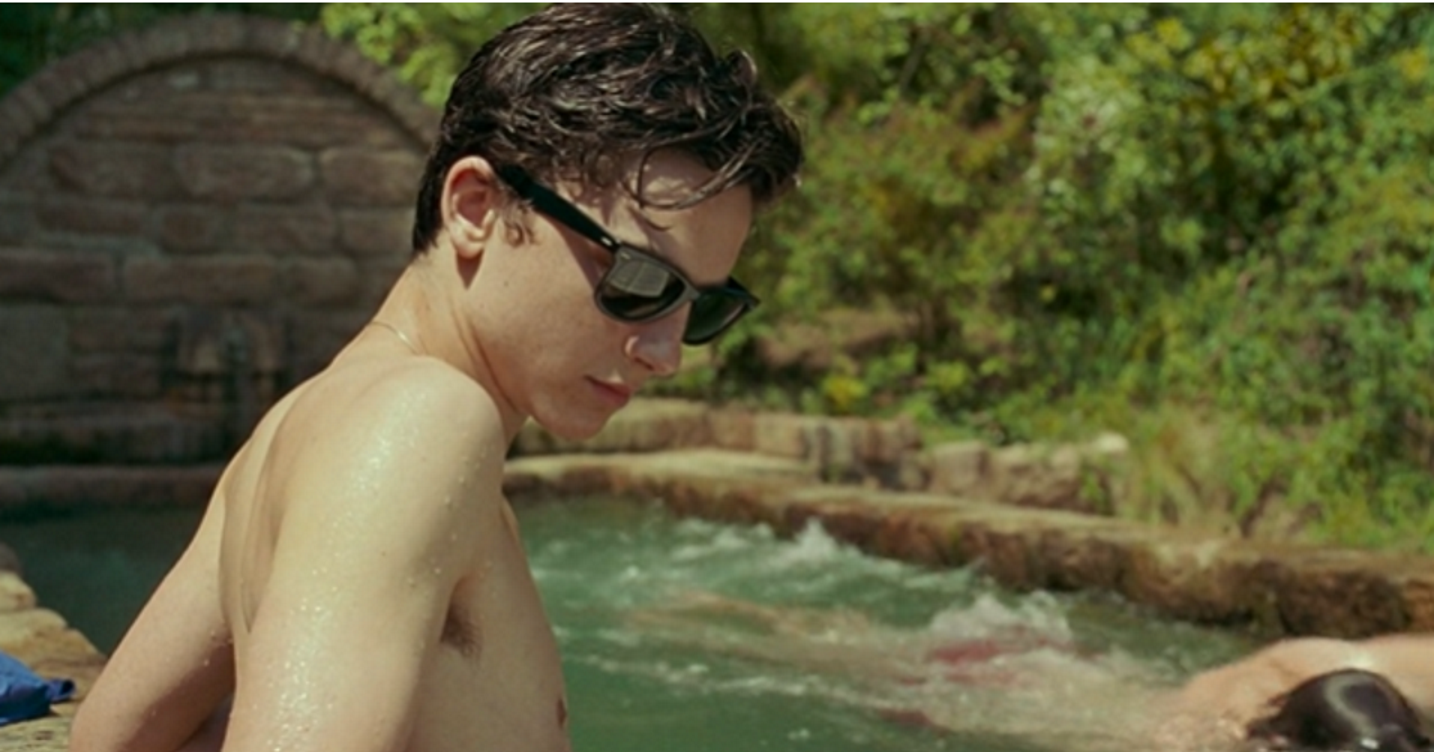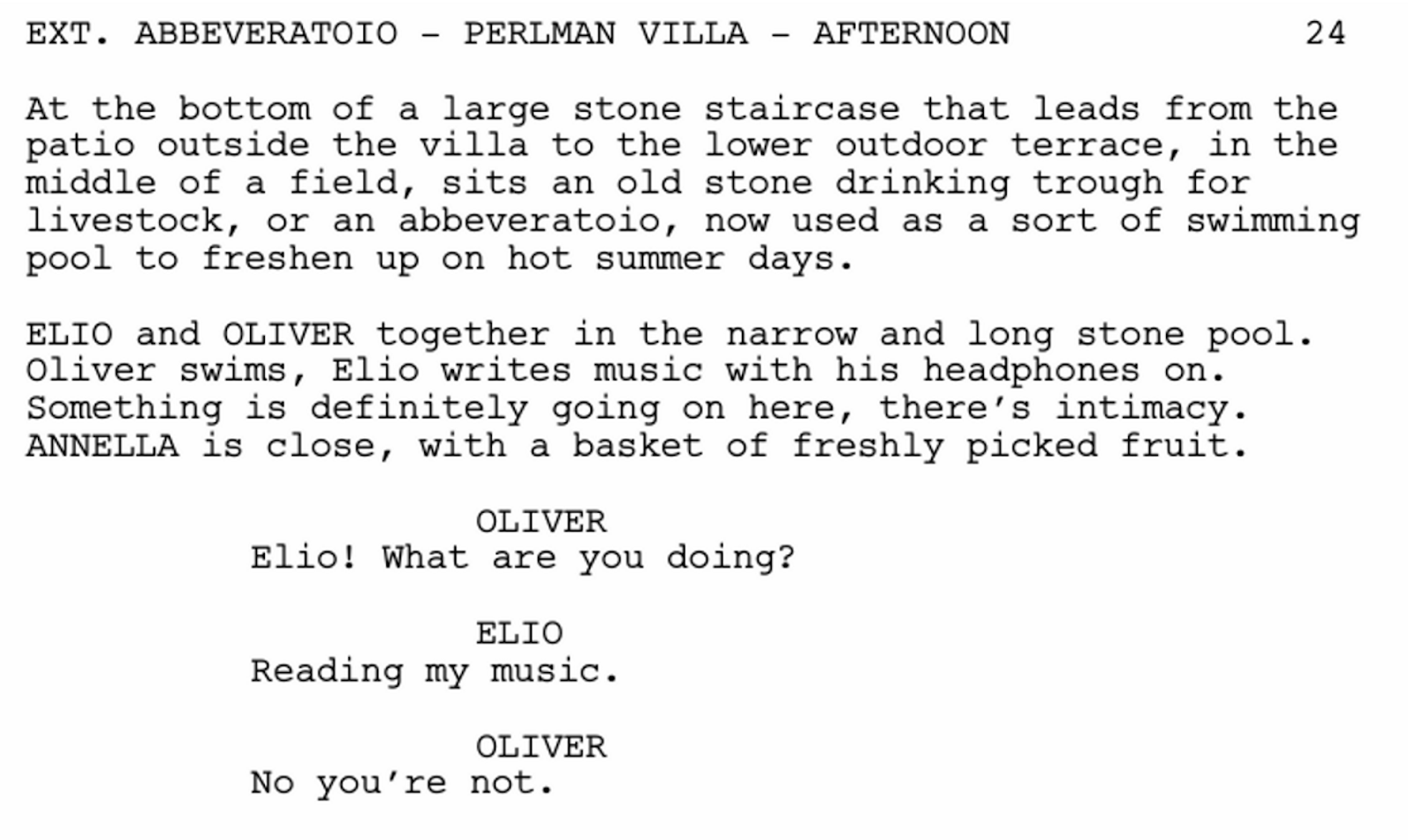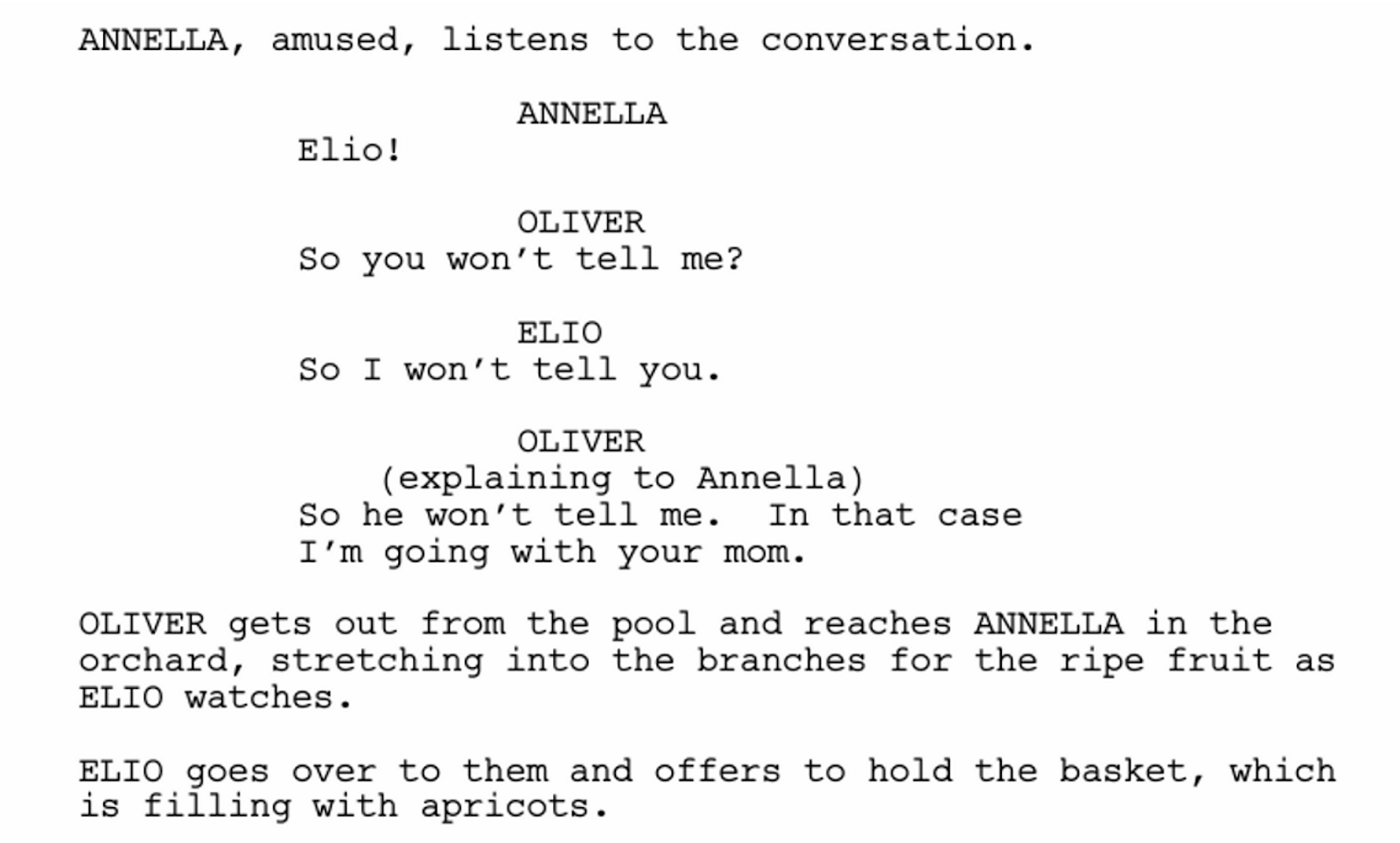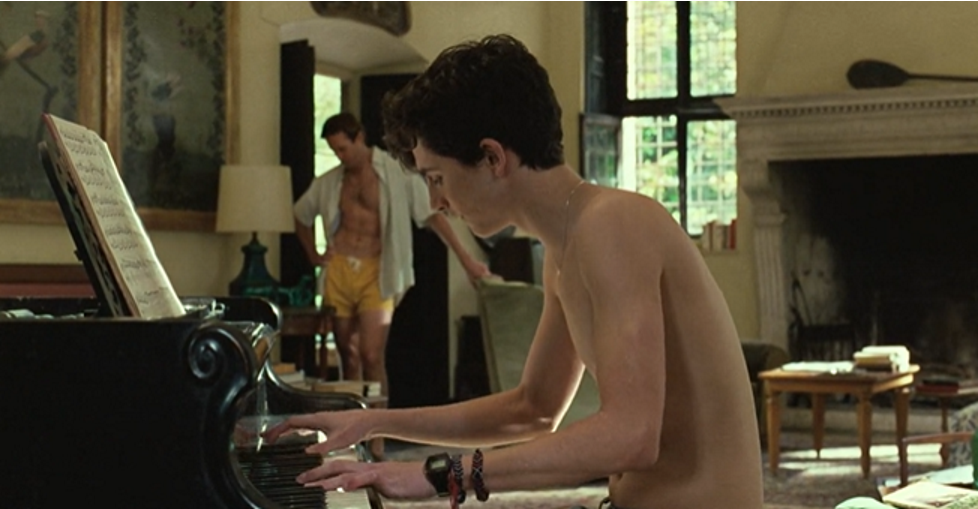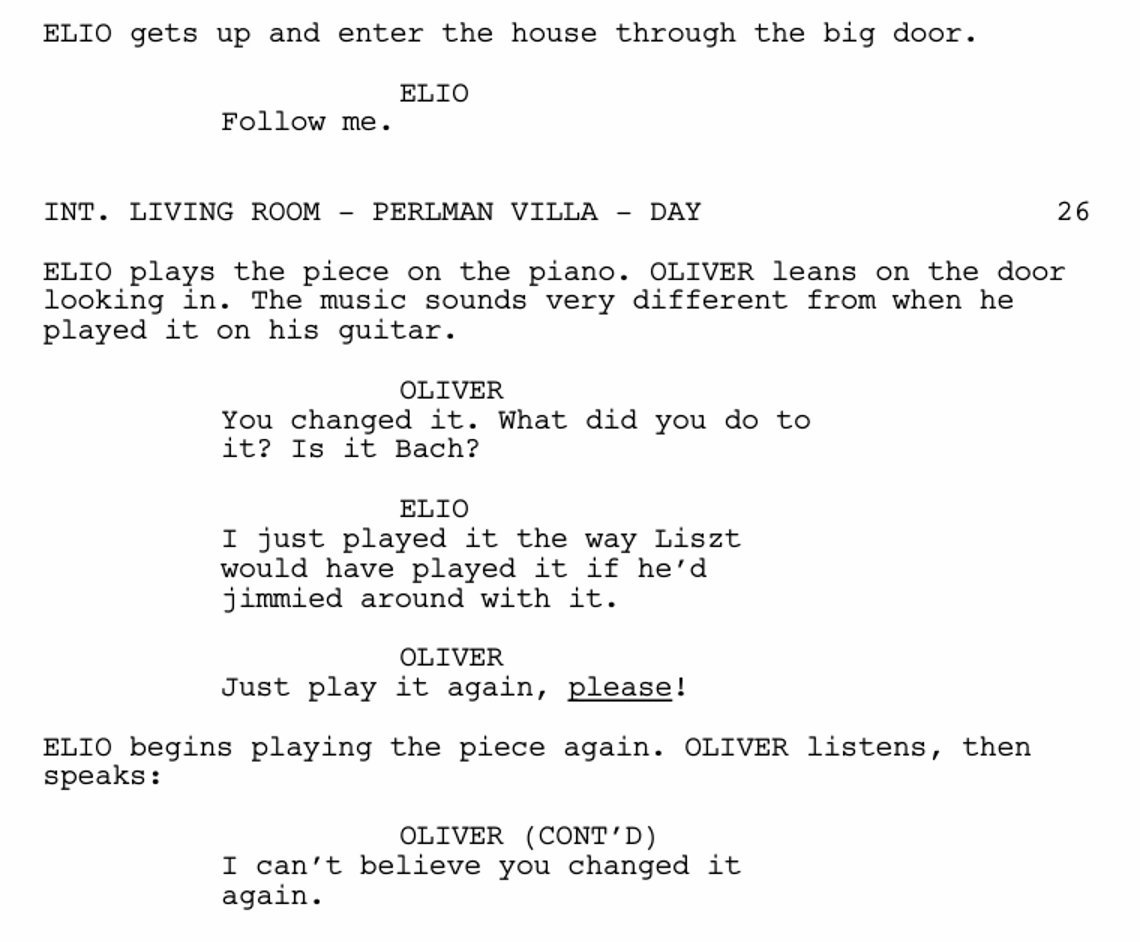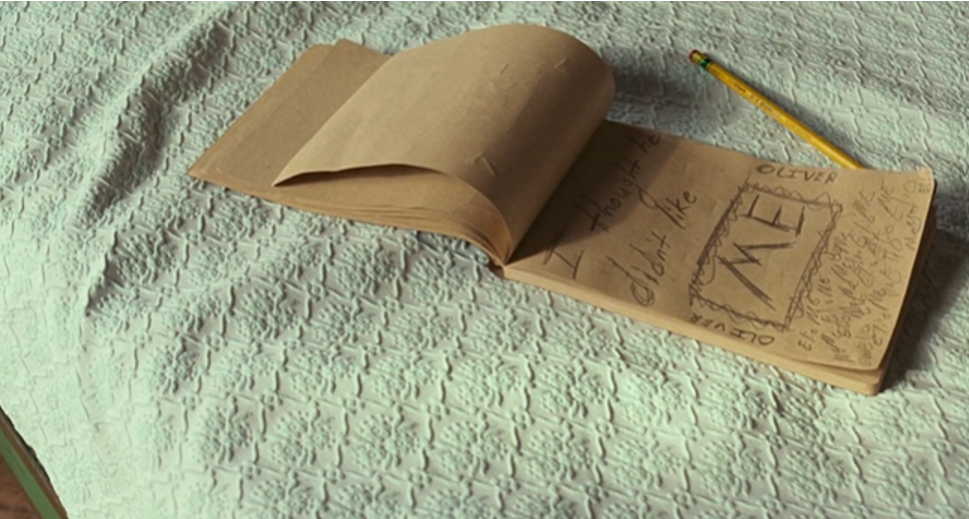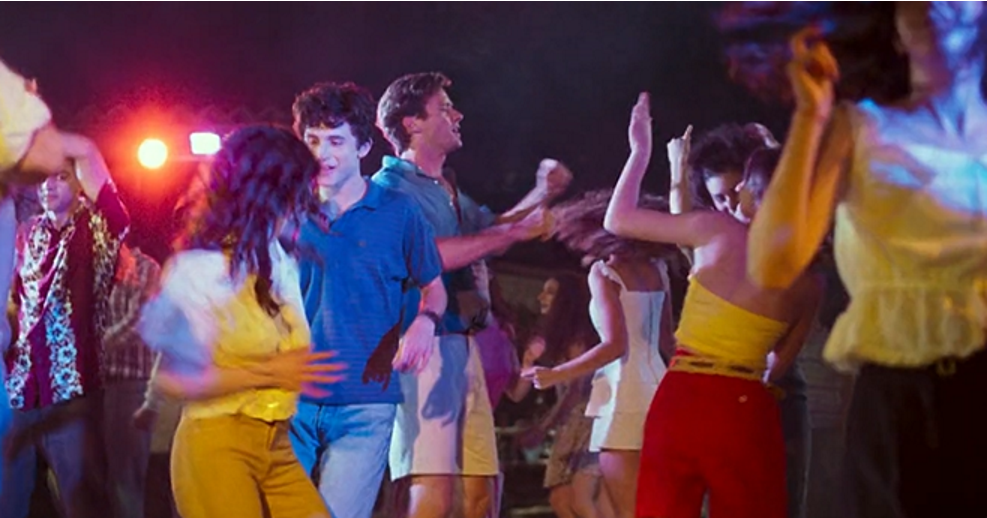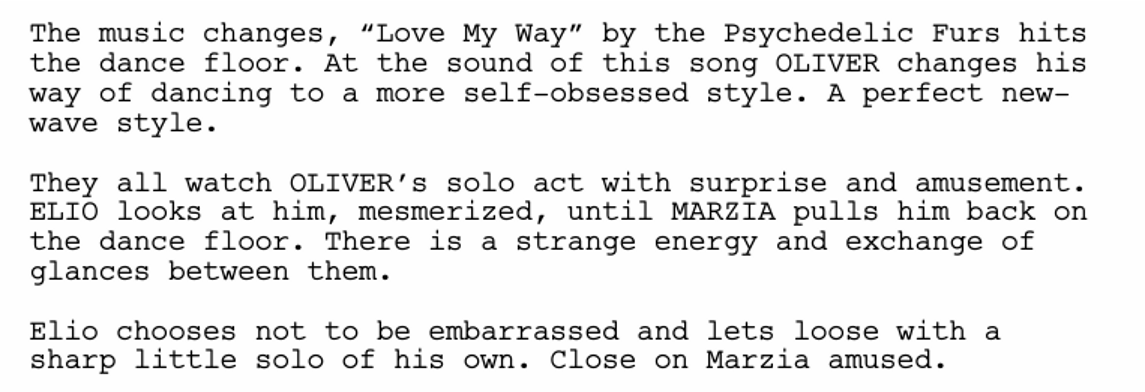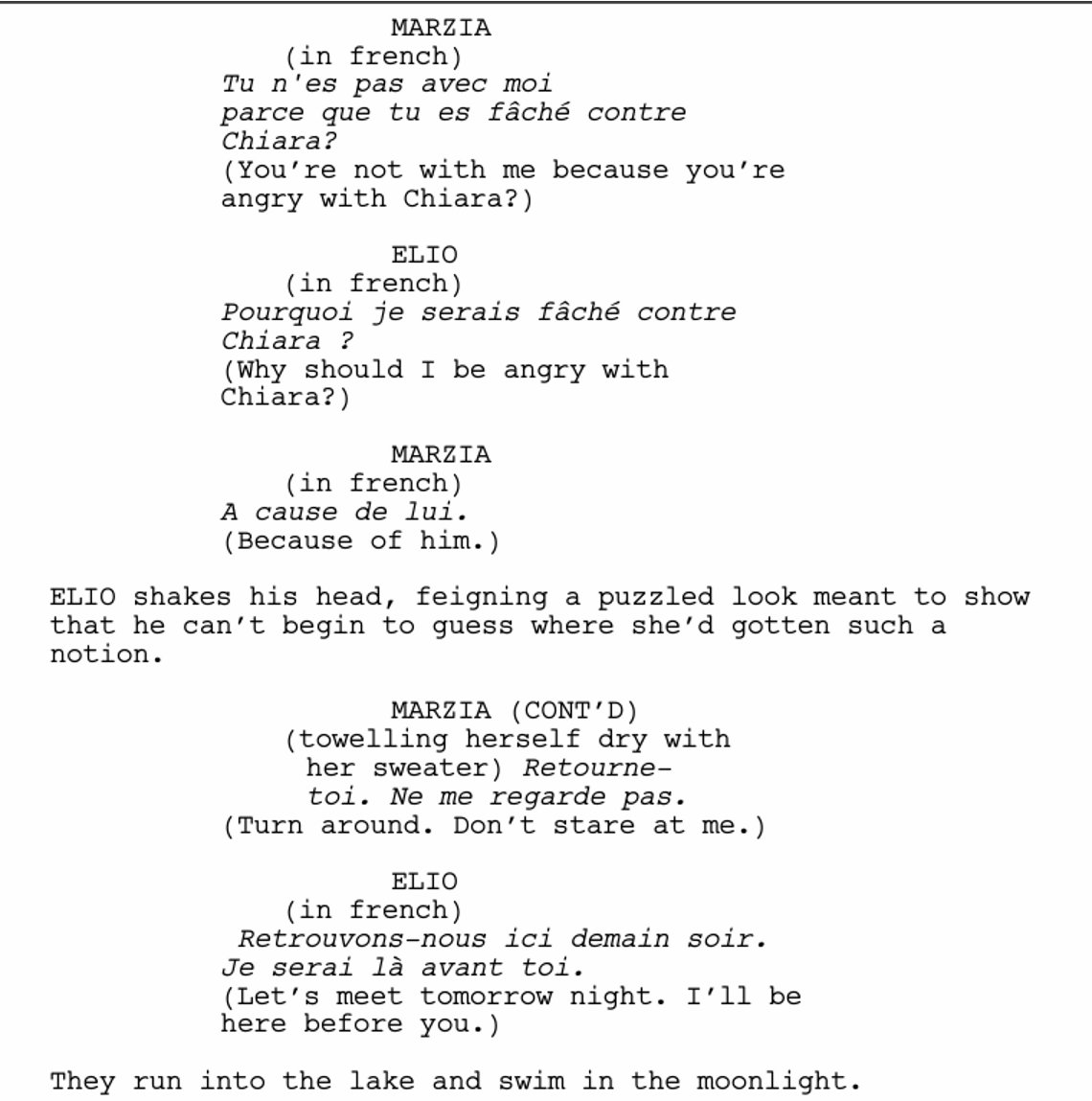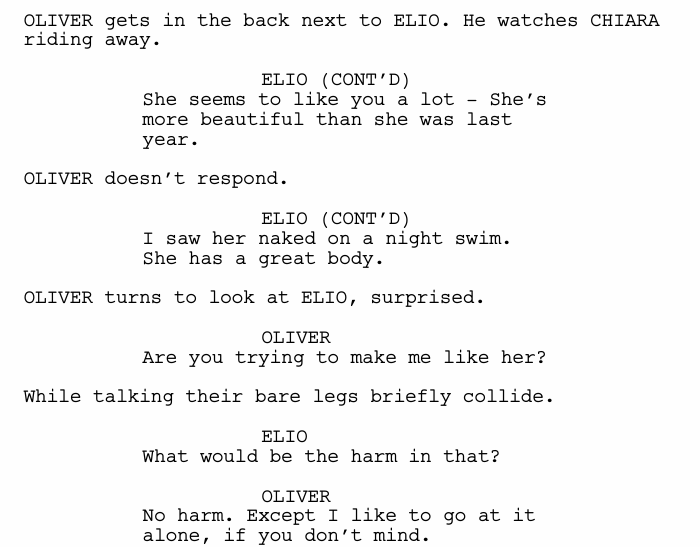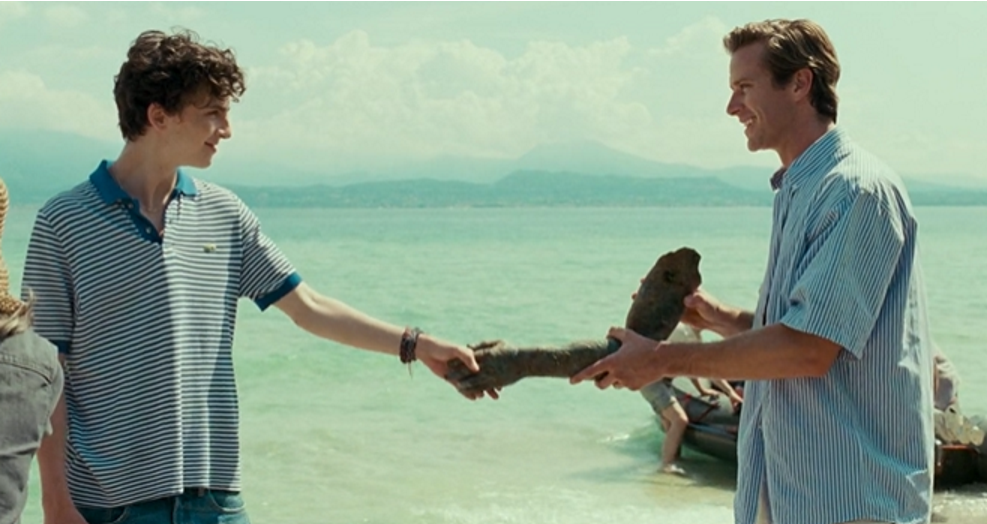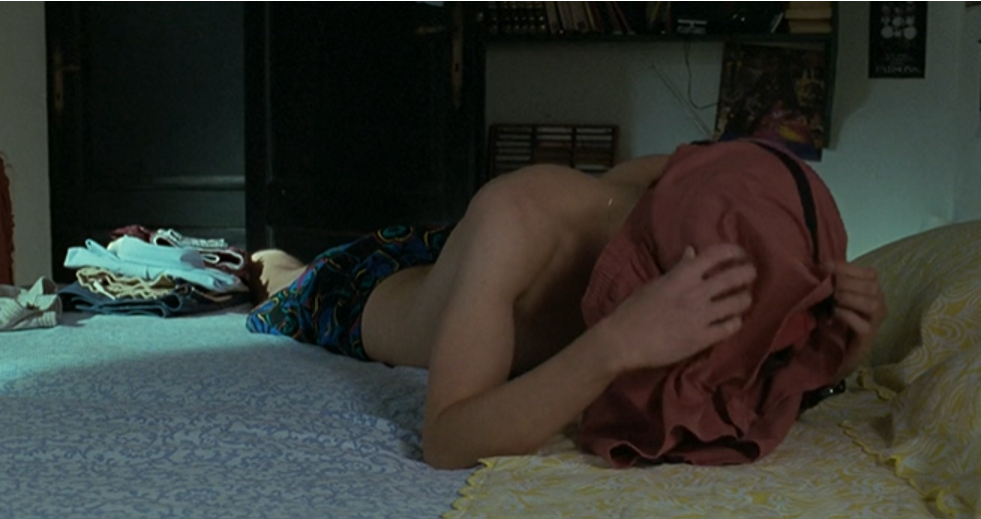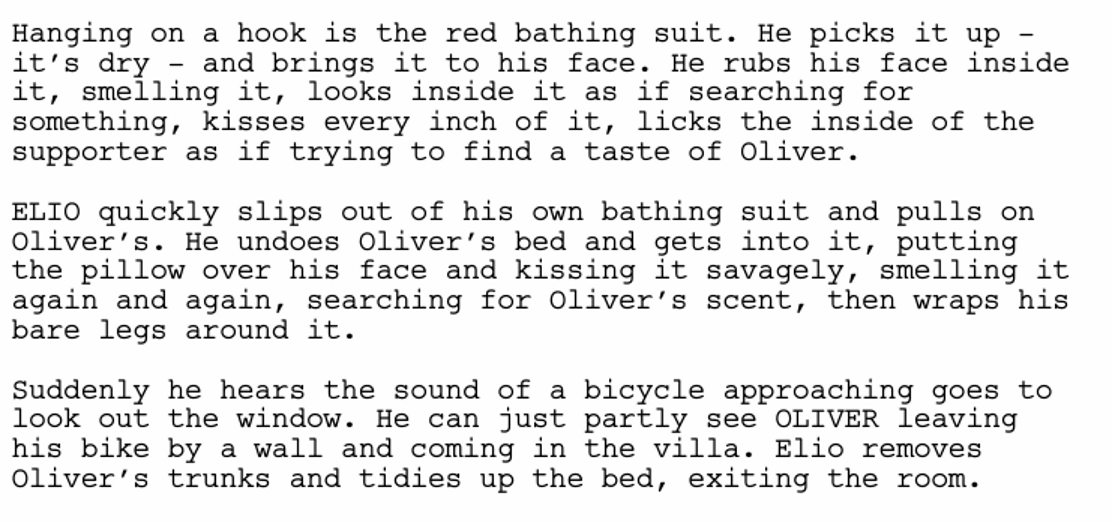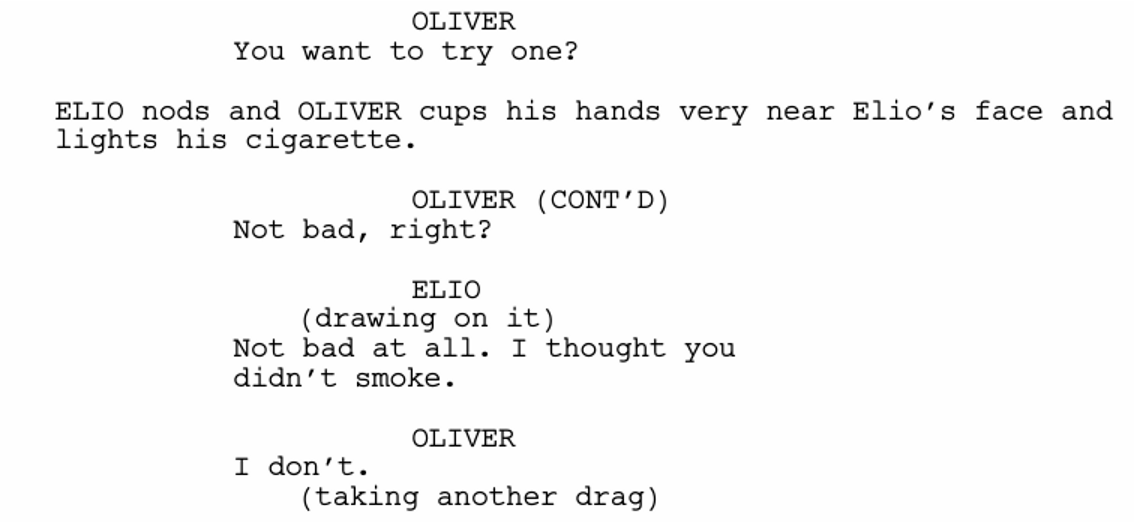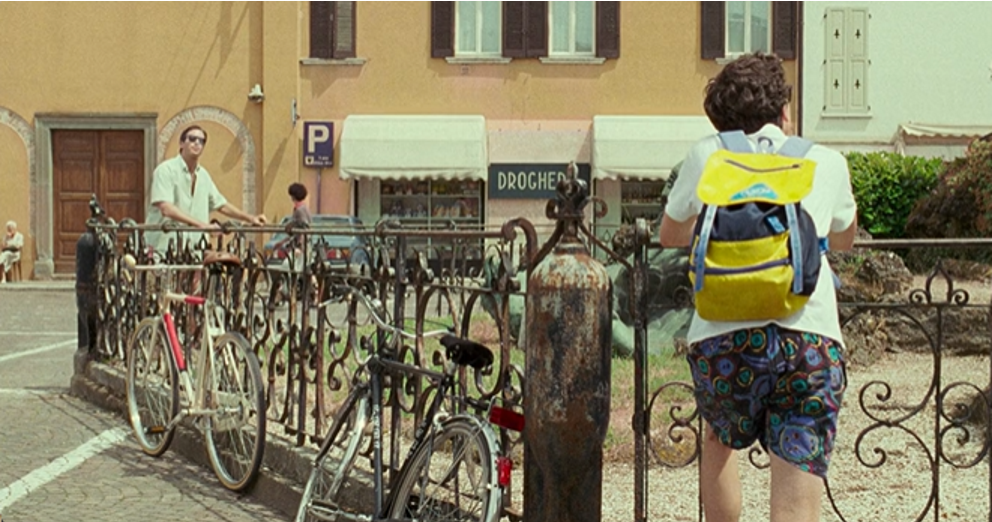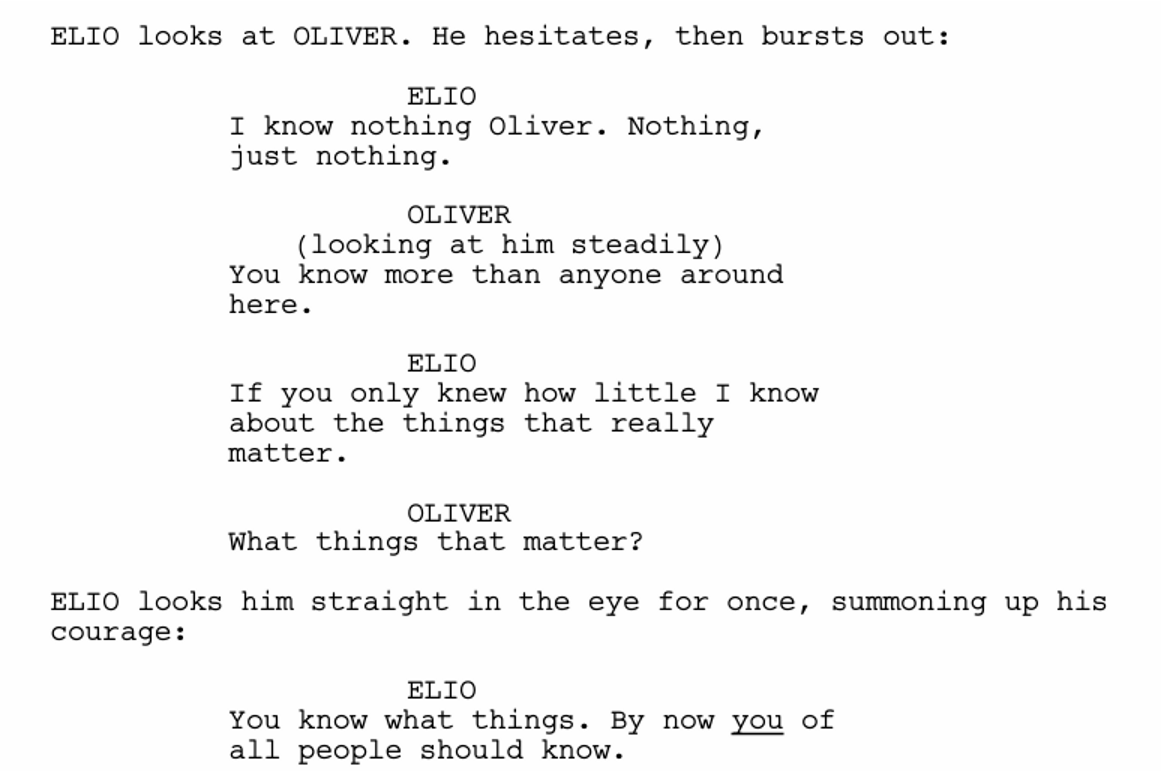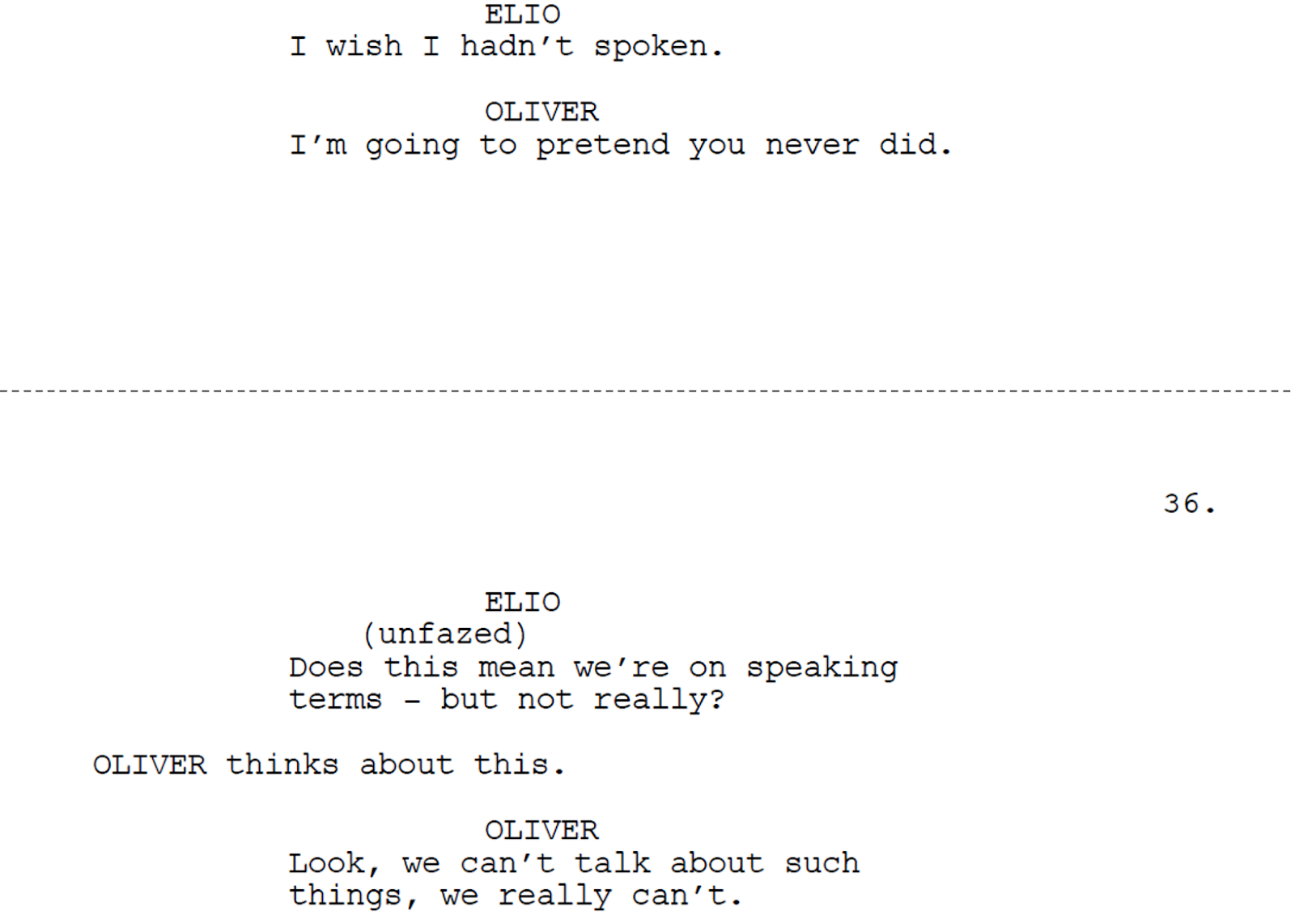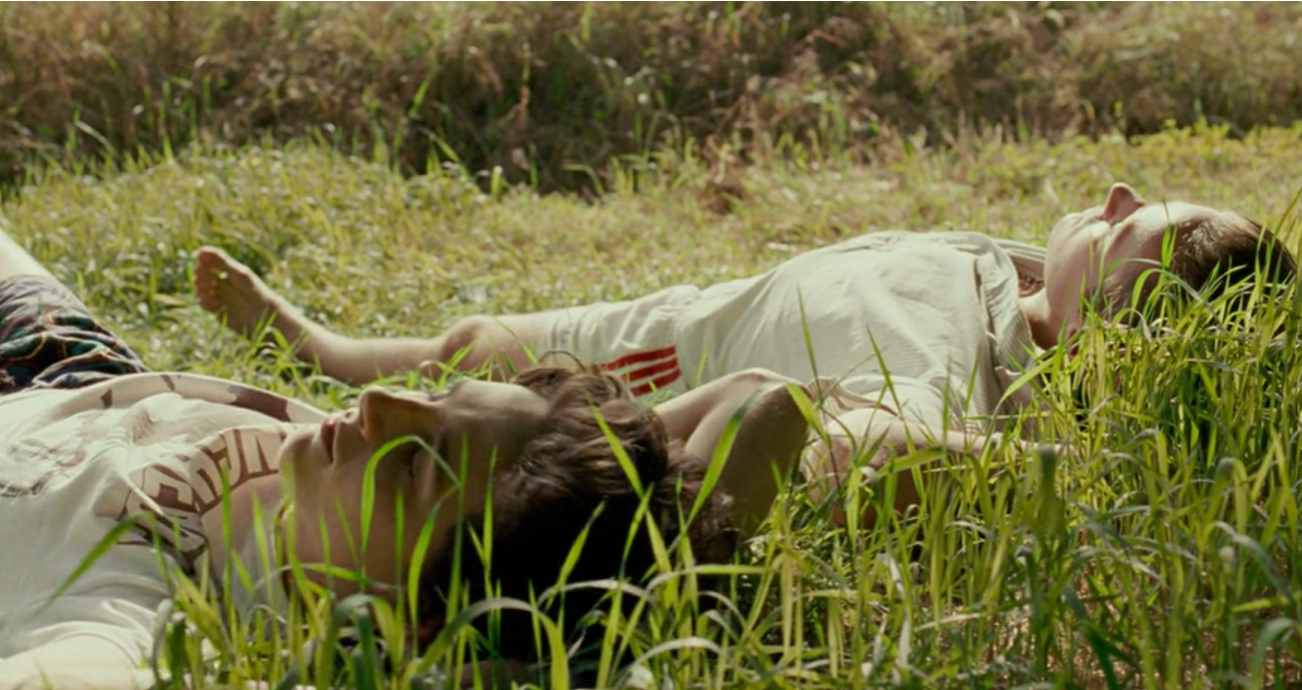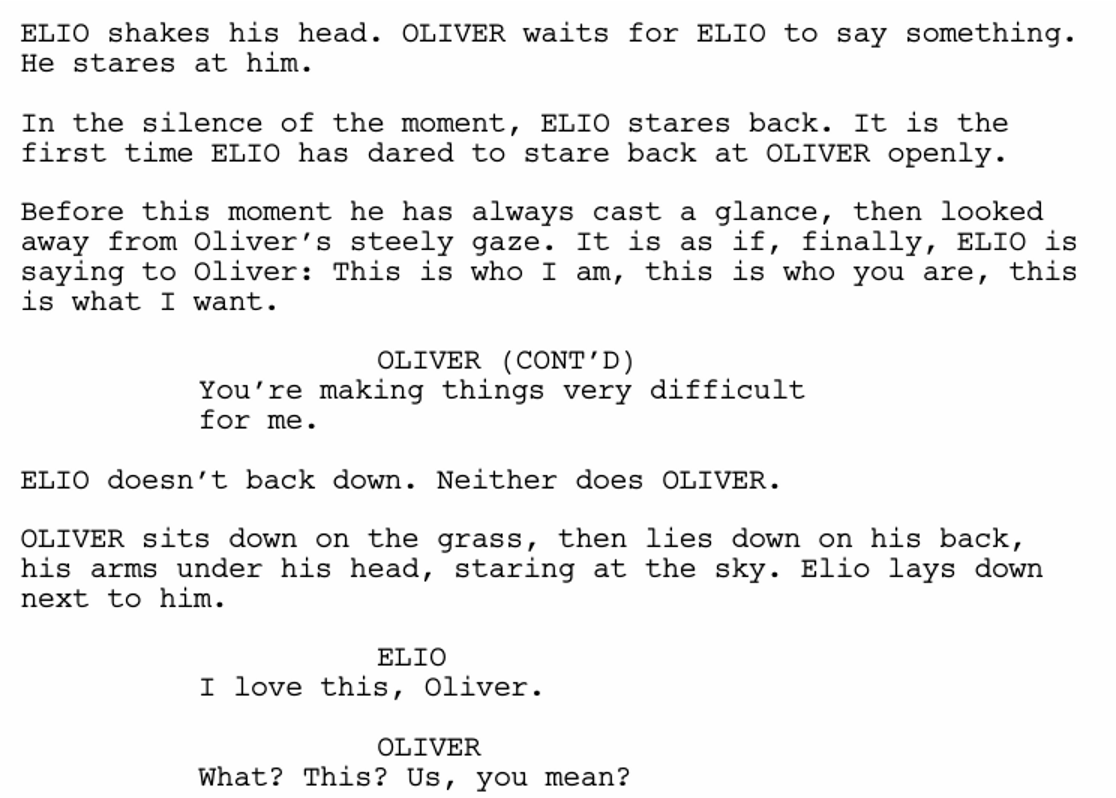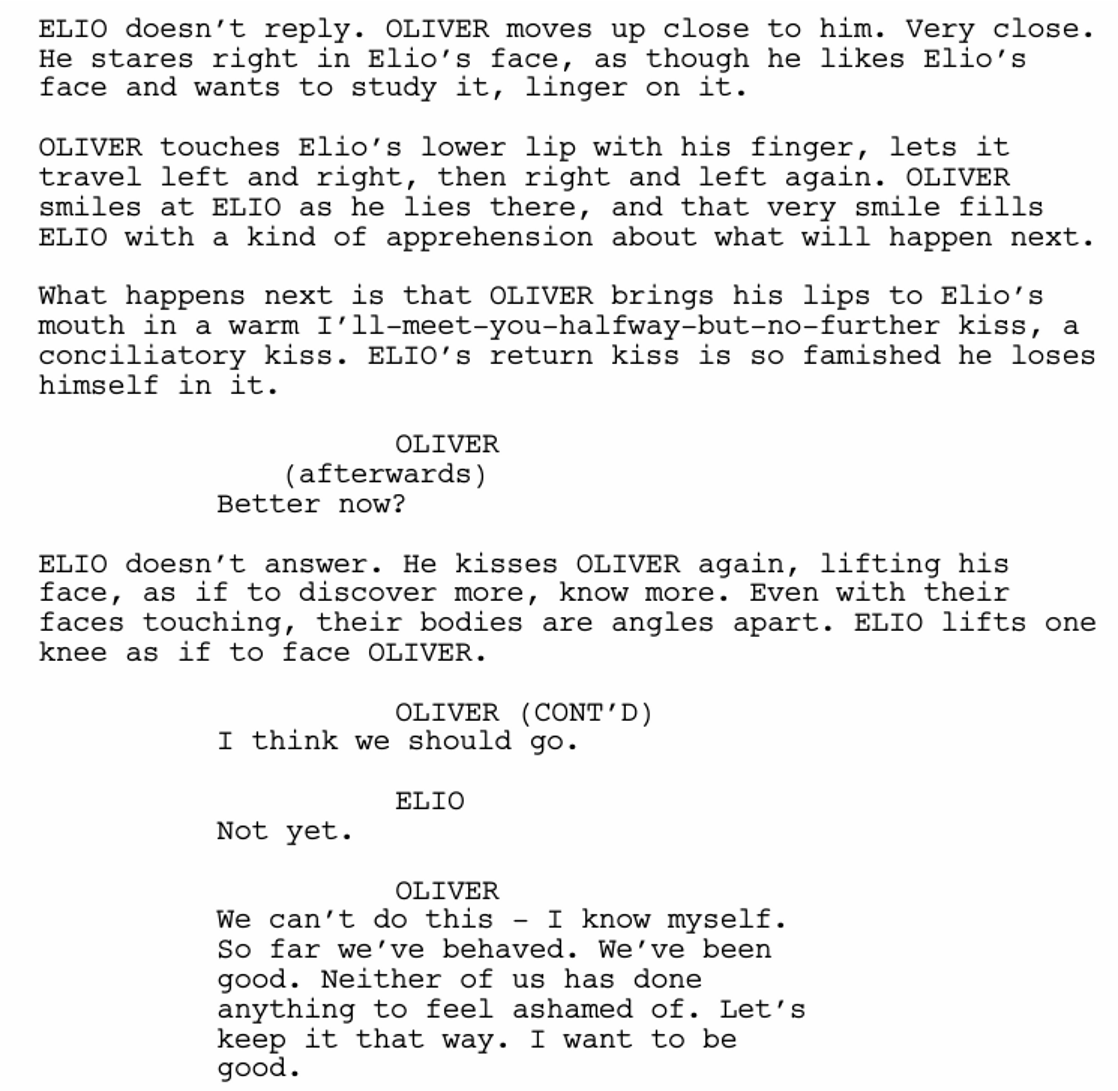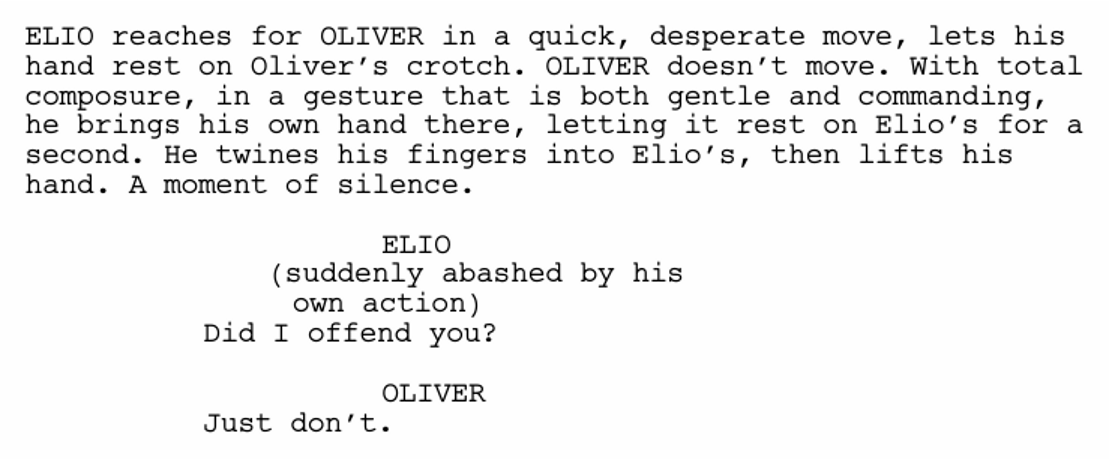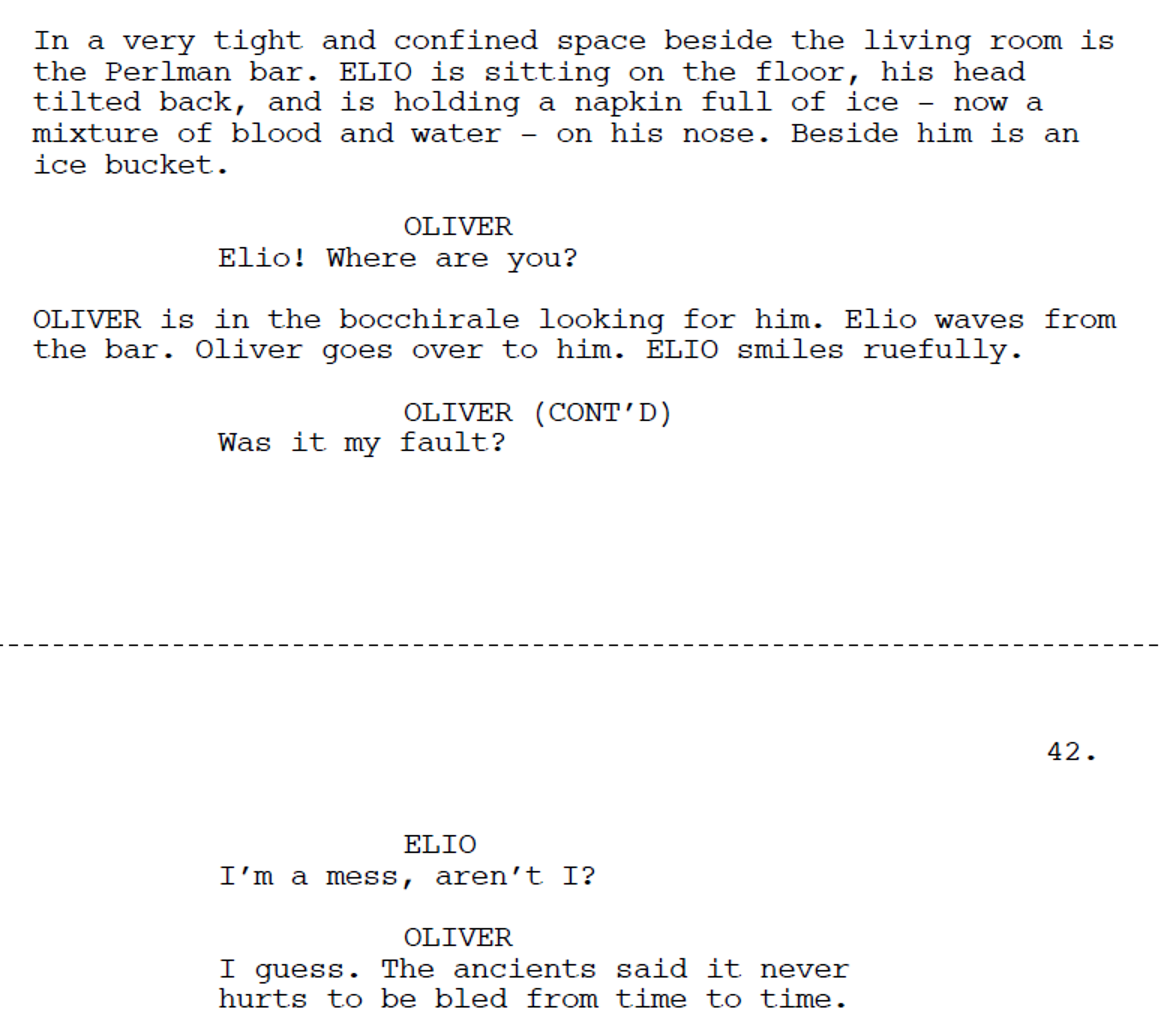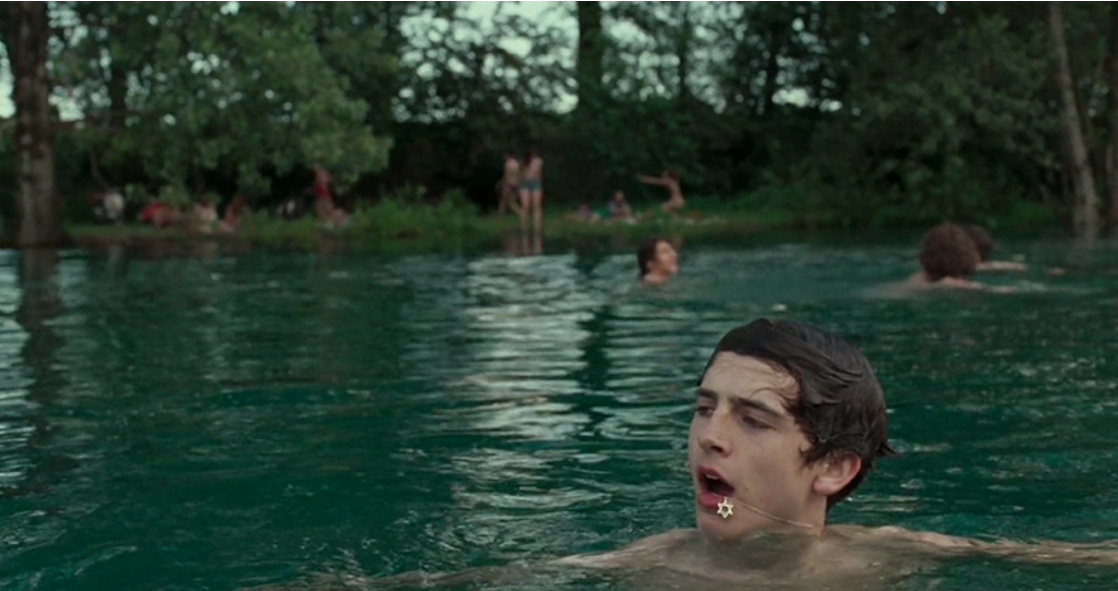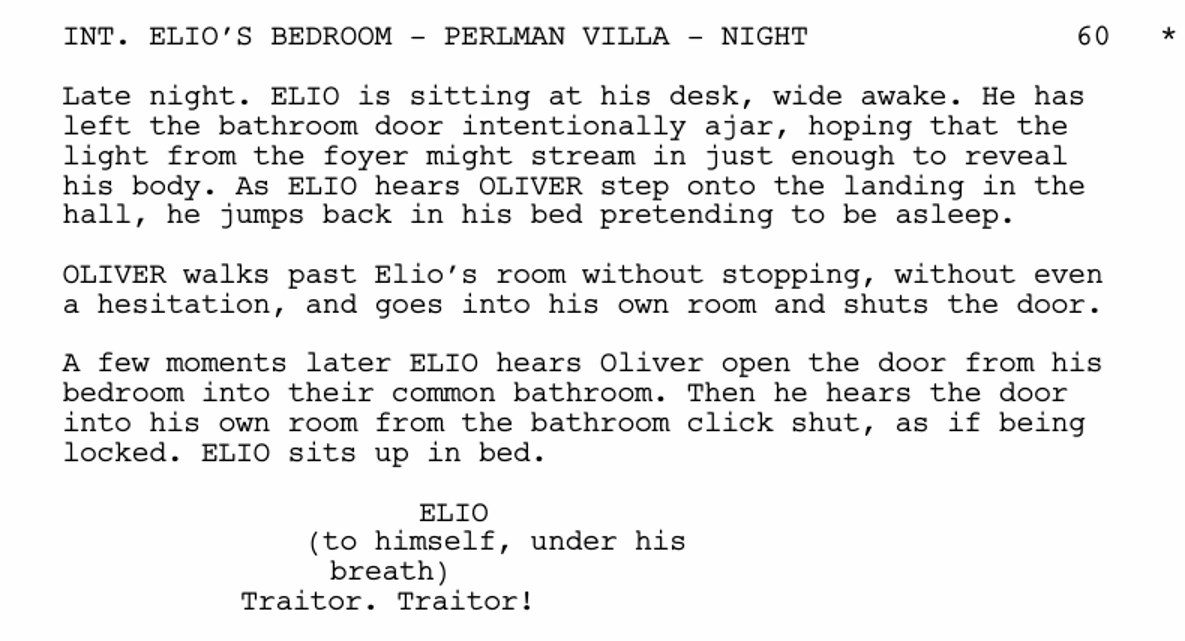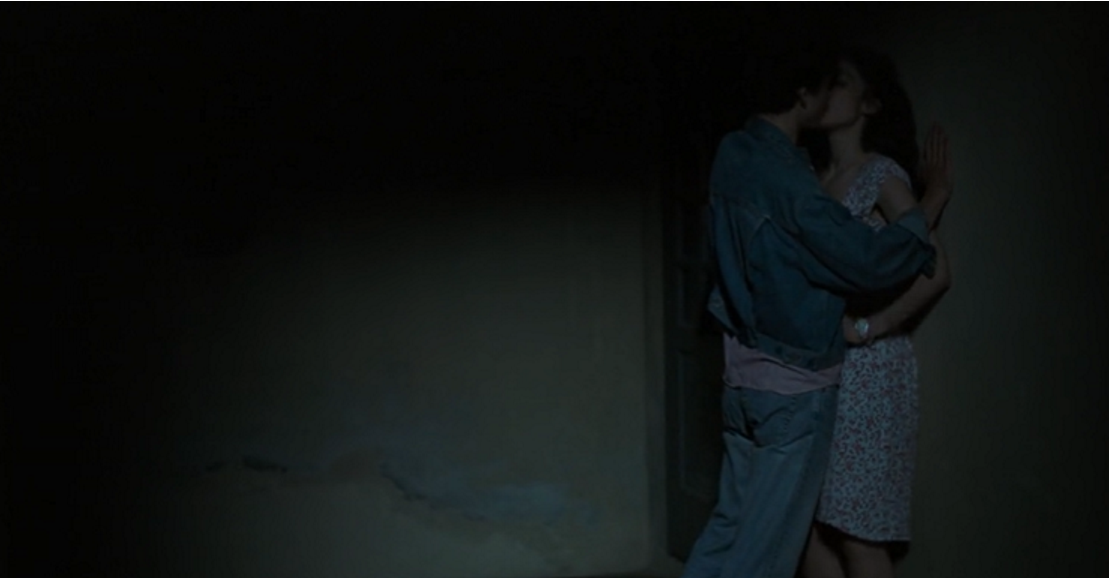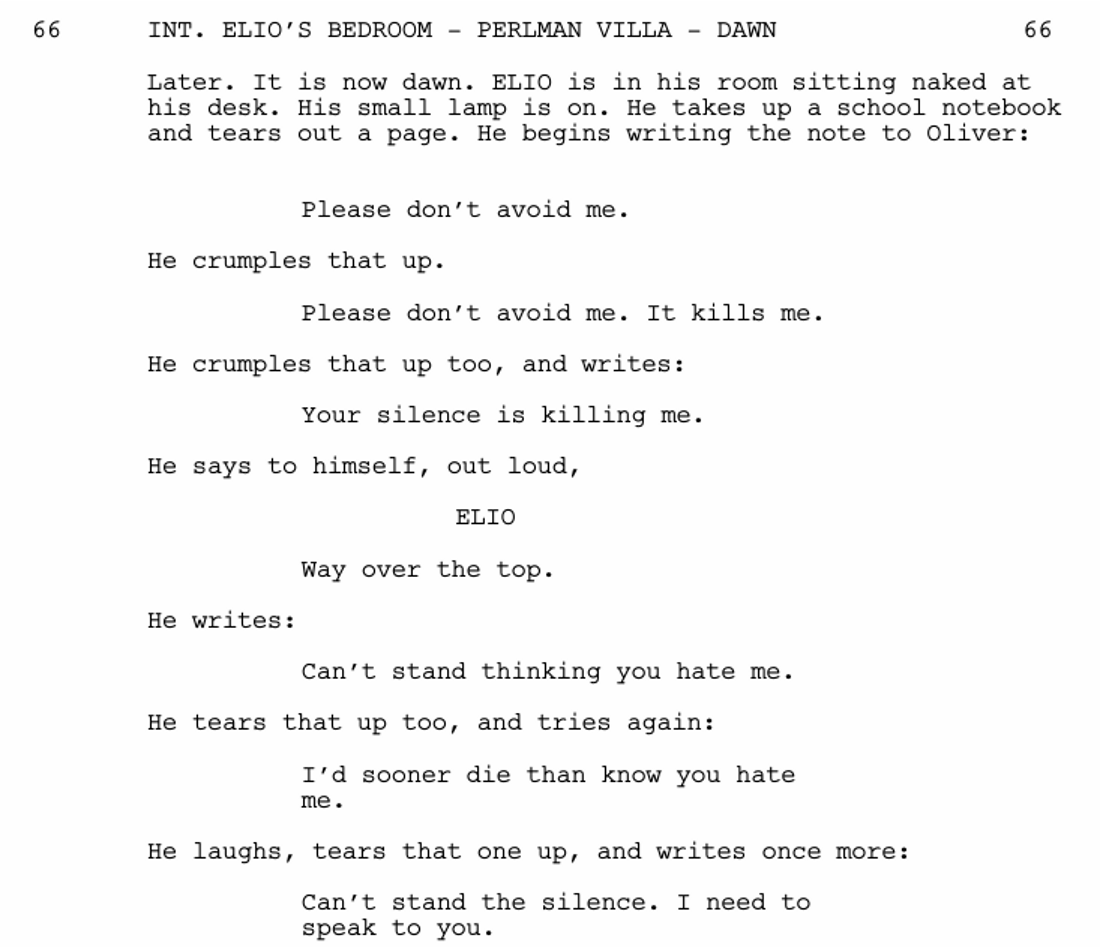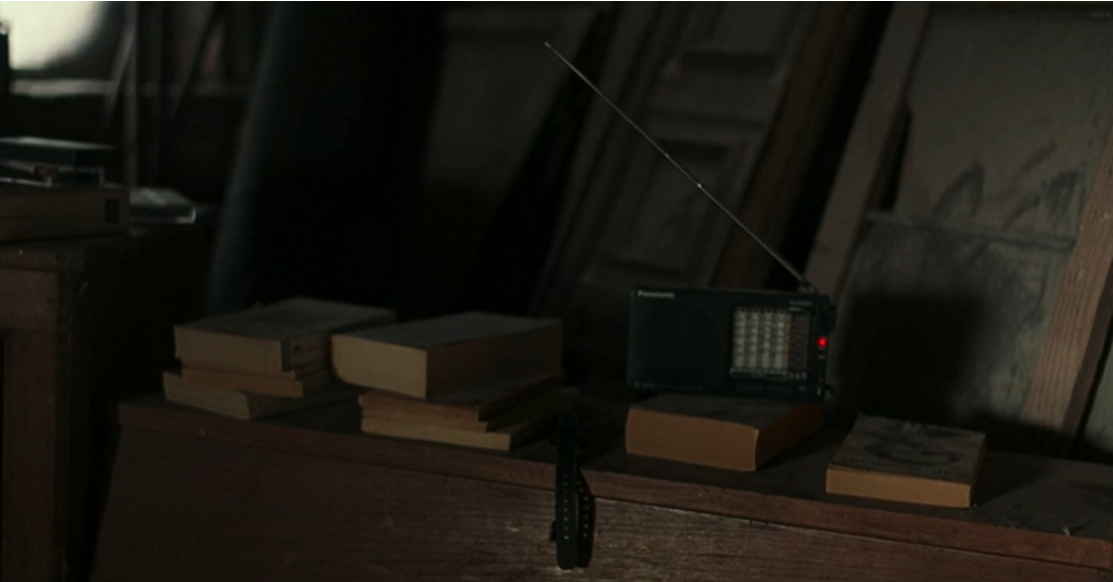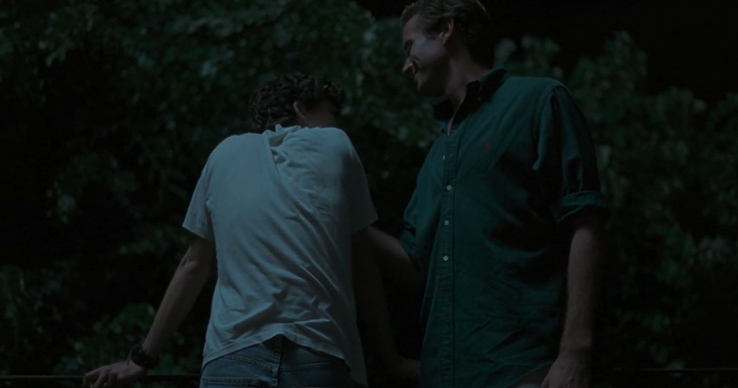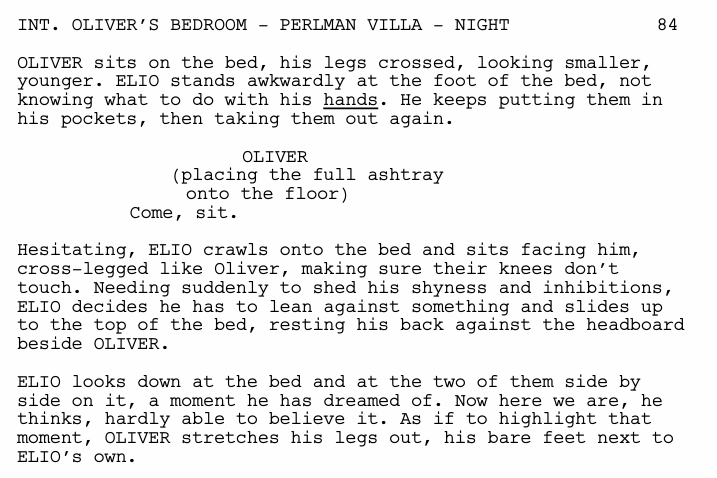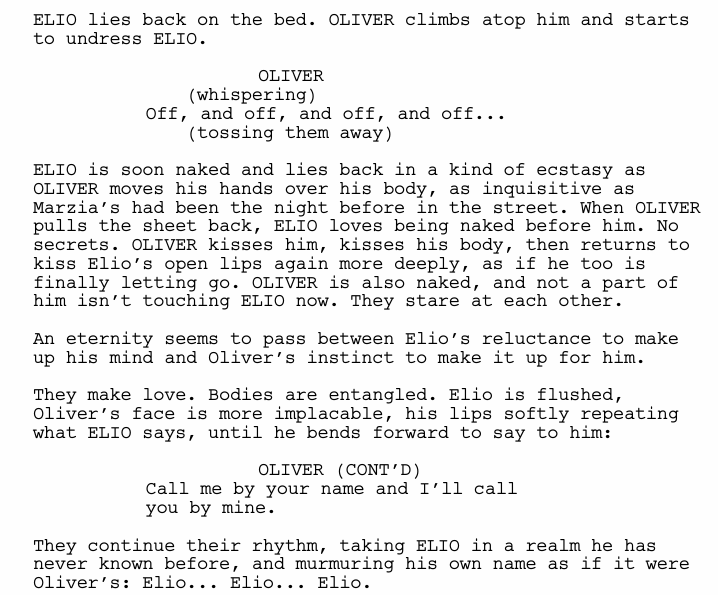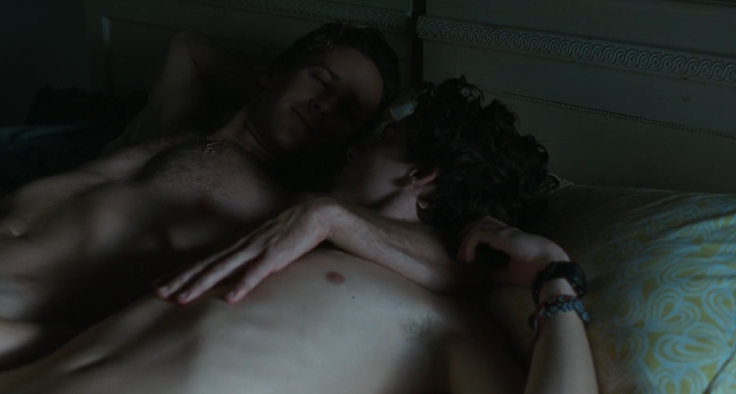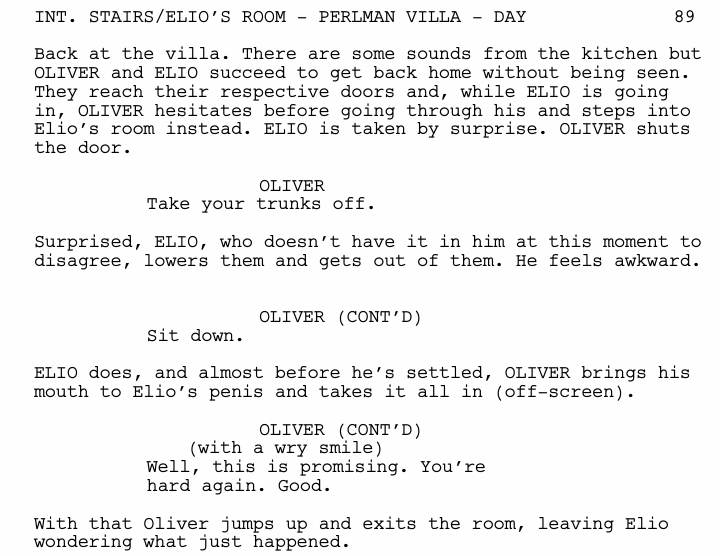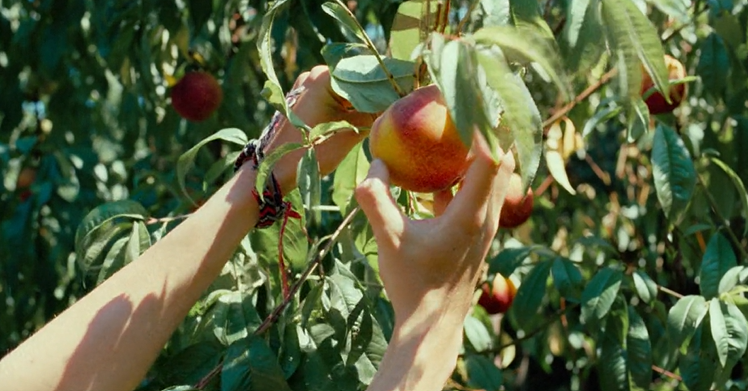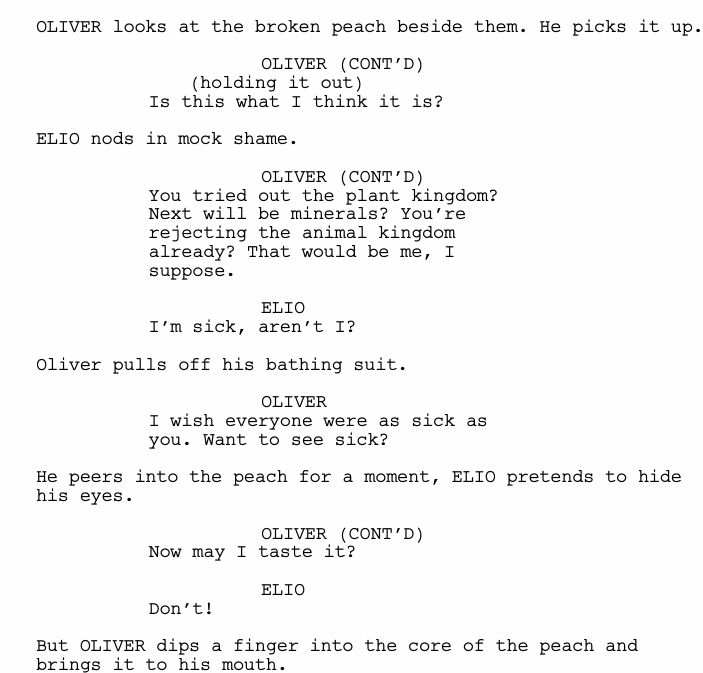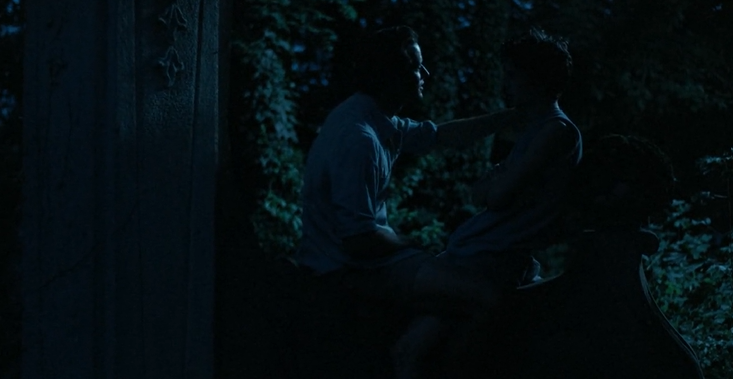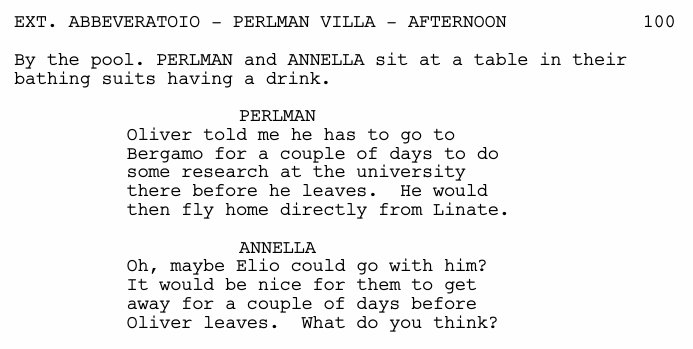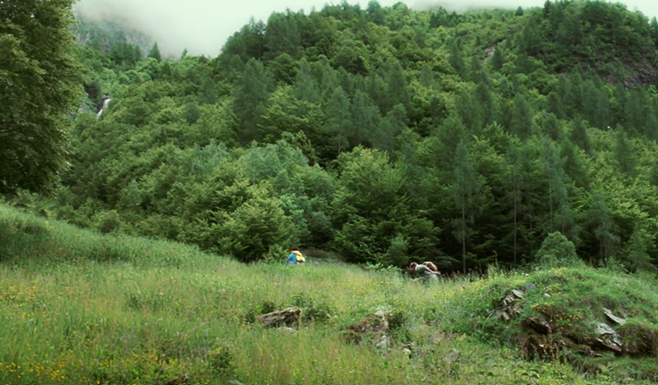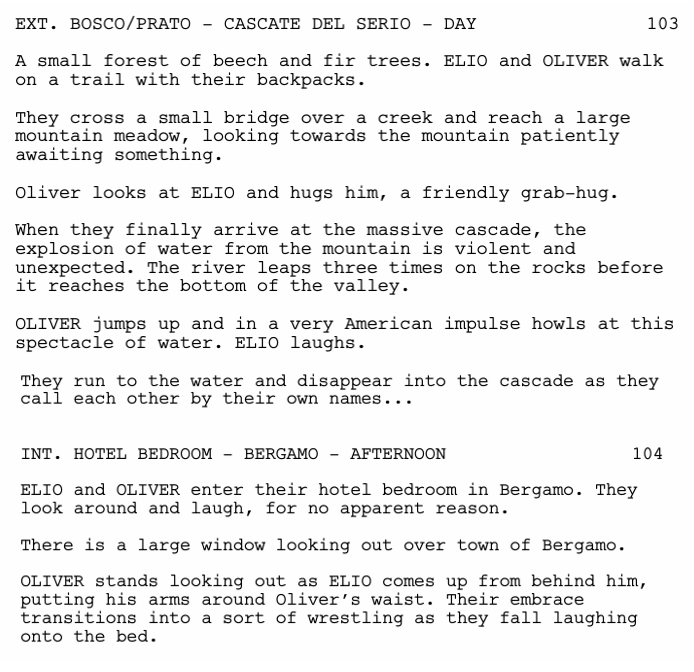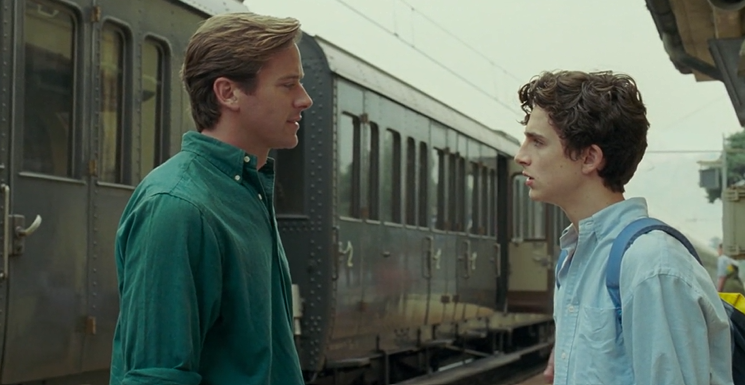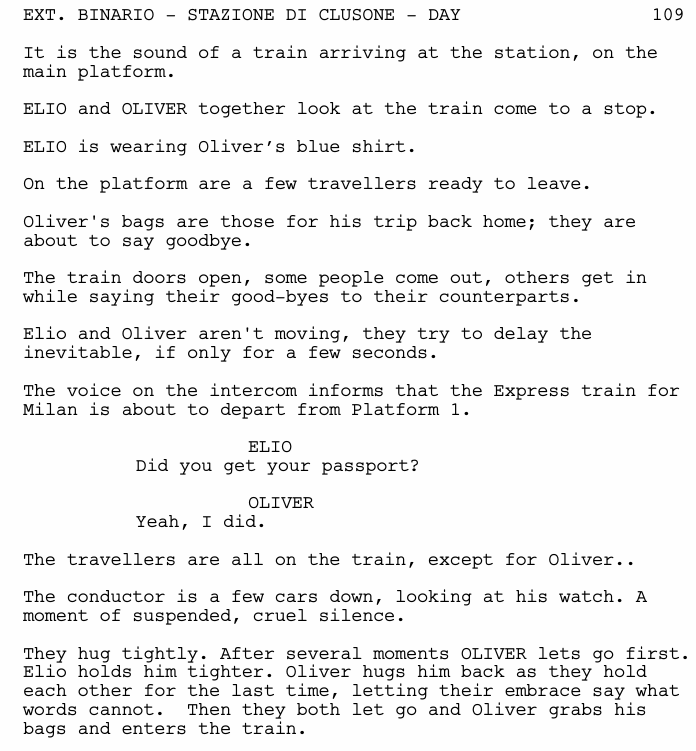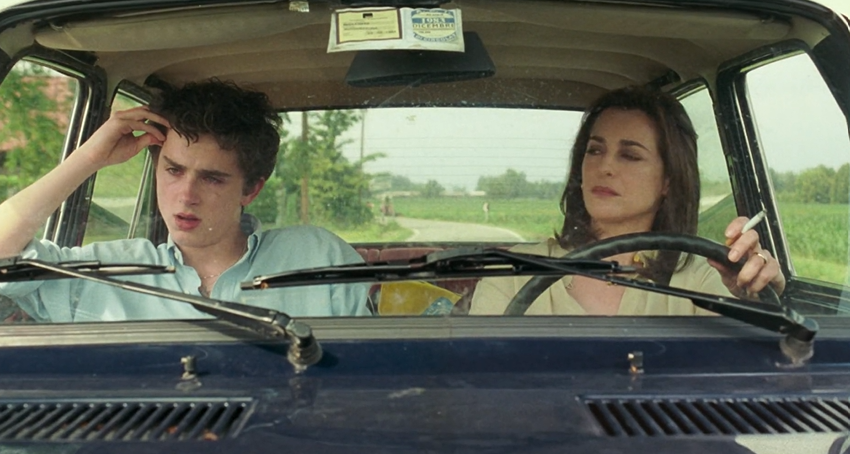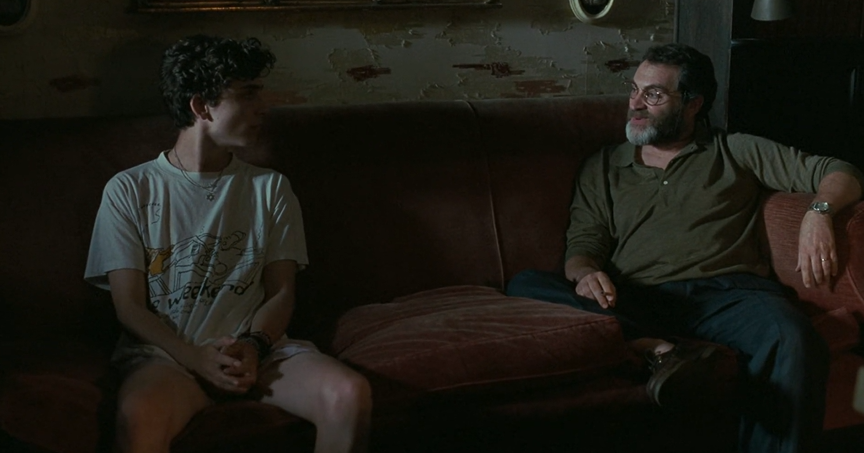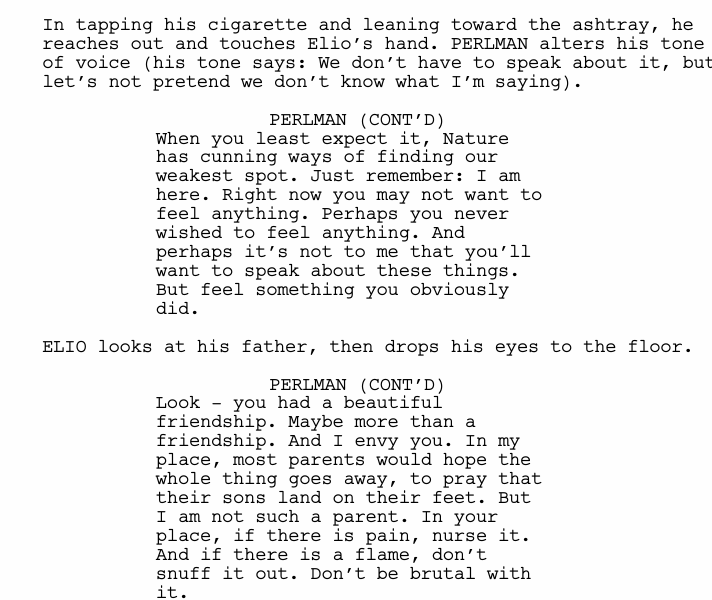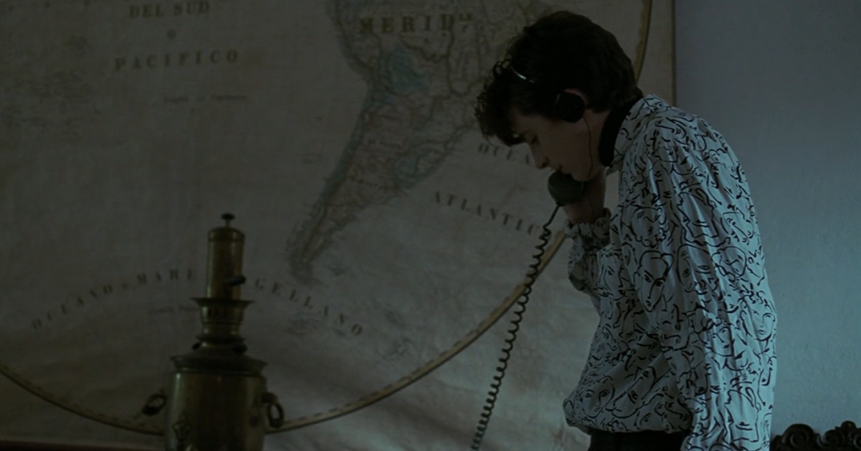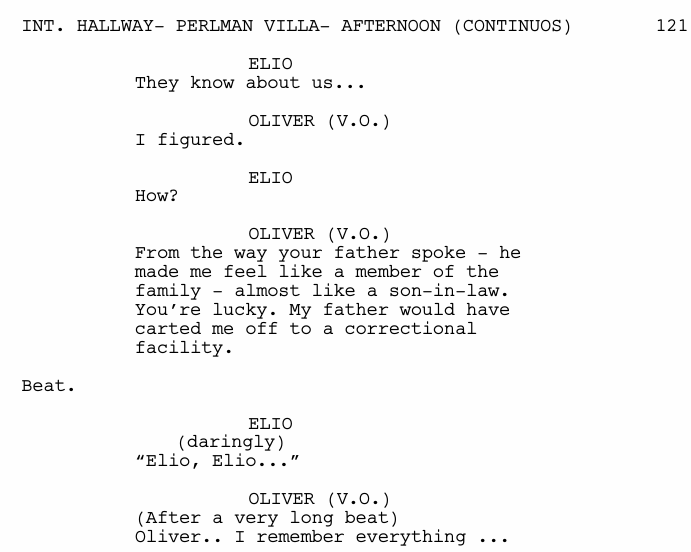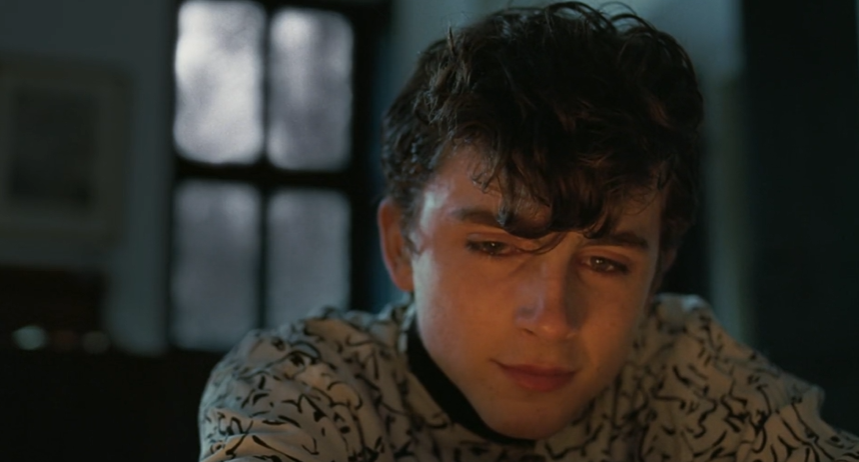The Summer of Love: A Call Me by Your Name Script Analysis
From where I’m writing, the summer is far too hot and far too humid. At times like this, it can be nice to watch a nice summer day through a movie screen, where I can experience all the relaxation of the season without sunlight beating down on me. That’s not to say that Call Me by Your Name, written by James Ivory and directed by Luca Guadagnino, isn’t hot. Indeed, it’s deeply sensual, at times shocking, and sometimes profoundly misunderstood. Adapted from the novel by André Aciman, the film tells the story of a summer romance between Elio Perlman and Oliver, a teenager on the cusp of manhood and the older student staying with his family.
Any time this film is brought up, a million hands will raise, eager to call it problematic and promoting unhealthy age gaps (as if they’re the first person to have this thought). I would argue that Ivory does not attempt to portray the power dynamic between Elio and Oliver in a wholly positive light; in fact, Oliver grapples with these very questions of power dynamics and potential harm during the film. When people argue that the relationship between Elio and Oliver is unequal or unhealthy, they are viewing this film as a love story, but it’s not. It is a coming-of-age story, Elio’s coming-of-age story. The film very rarely lets us into Oliver’s head. He is relevant to the story only in so far as he impacts Elio’s journey towards maturity. The film leaves room to debate over whether the love story is ethical or unethical, beautiful or disgusting, romance or grooming… whatever the case, it is impactful on Elio. Call Me by Your Name is the story of a single summer and how it affects a young man. There are the ups, there are the downs, but Elio comes out on the other side as a more well-rounded and clear-headed individual.
Ivory’s writing crafts a story that builds in intensity, just as Elio’s feelings and curiosity do. First, inquisitive glances. Next, a dance of coded words and body language. Eventually, both Elio and the audience are thrust into a world of romantic and sexual exploration that is, at times, overwhelming for both. Emotions swing rapidly between summertime sadness and summertime gladness as only teenage emotions can. Then, as quickly as it begins, it’s gone. How does Ivory balance and structure this? Let’s unpack it!
CREDITS
To cheat for a bit and discuss an element of the film that doesn’t appear in the script, I’d like to talk about the opening credits. I’ll be brief, but I think my interpretation of the credits helps me to see past some of the criticism this film receives and enjoy it as a coming-of-age story.
As we’ll later learn in the film, Elio’s father is an archaeologist, and the opening titles play over images of ancient Greek and Roman art, specifically depictions of the male form. These ancient Mediterranean cultures had different conceptions of the ideal male form than we have today (notably, they didn’t put as much value on size as we do today). The process of becoming a man was also notably different in Ancient Greece and Rome, and here is where I think we find a direct mirror to the core relationship in this script.
Greeks and Romans both practiced homosexual partnerships between older and younger men, what we now call pederasty. While incompatible with our modern ethics, these relationships were seen as both formative and erotic, combining masculine mentorship with sexual development. These relationships were fleeting, with strict roles of man and adolescent, and graduating from adolescent to man was accompanied by the end of these sexual relationships. Similarly, Call Me By Your Name has a man and an adolescent engage in a fleeting sexual relationship, and once it is over, Elio finds himself on the other side of manhood. Applying this lens to the film can help us see Elio and Oliver not as a love story problematic by today’s standards, but as a complex relationship that mixes growth and desire, echoing the ancients we see over the opening titles.
OPENING IMAGE
The film opens with Elio moving clothes from his closet, preparing for the incoming tenant Oliver. Marzie, his on-again, off-again fling, lies on the bed, notably fully clothed. Ivory’s script states that both Elio and Marzia have been in bed together prior to this scene, but later conversations allude to the fact that Elio is sexually inexperienced before this point.
The haphazard way that Elio tosses his clothes around alludes to his immaturity, chucking them into a pile to be dealt with later. His treatment of Marzia also speaks to this, with him basically ignoring her presence and then getting distracted by the sound of Oliver arriving. Personally, the guitar on the bed makes me think that we’ve just missed Elio playing music at Marzia just before the movie starts.
During Oliver’s arrival, Elio and Marzia observe from a distance, something that will become a running theme for Elio in this film. He’s curious about Oliver, even a little wary, calling him “the usurper”. Elio prefers to keep his distance from objects of his curiosity, though that will become difficult when ‘the usurper’ moves in right next to him. The scene ends with Elio going to welcome Oliver, though it’s prompted by his mother asking for him. Once again speaking to Elio’s youth, his initiative is driven by not wanting to upset his parents and cause a scene… but it’s a start.
TABLE SETTING
As Elio goes downstairs, I wanted to highlight a line added in the film that’s not in the screenplay. Annella (Elio’s mother) tells him to bring up Oliver’s things, but then Elio adds: “He’s here already?” This, to me, shows Elio already being secretive about his curiosity regarding Oliver. He knows Oliver is here, he just watched him arrive. Whether consciously or subconsciously, he’s hiding his intrigue from his mother with an unnecessary lie.
This is also where we get the introduction of Elio’s parents. His mother, Annella, keeps her home running with constant events and chit-chat, and reinforces polite behavior in her son. Elio’s father Dr. Perlman, an archaeologist, has a flair for the dramatic and, as we’ll learn later in the film, is incredibly observant and empathetic.
As for our deuteragonist Oliver… we don’t learn much about him in these first few scenes. His interactions with Elio are short and curt, though he does bring a casual American-ness to this wealthy European family, immediately dropping onto his bed without so much as taking off his shoes.
Later in the evening, we find Elio transcribing music, his main hobby throughout the film. It definitely fits his artsy, reserved, and slightly precocious character, but it also speaks to the struggle that Elio will have throughout the first act: making the implicit explicit. Music transcription is the process of listening to a piece of music and then notating it, translating ephemeral sound into hard lines and notes. It’ll prove a little harder for Elio to translate his ephemeral emotions into words and actions, though.
In fact, we continue to see Elio’s habit of being indirect and dancing around confrontation when the family is called to dinner. Oliver is fast asleep, and instead of just waking up the man (and maybe touching him), Elio drops a book to startle Oliver awake.
It’s the beginning of the dynamic these two will have throughout the first half of the film: Elio refusing to face Oliver head-on, instead playing games with him in a slightly childish manner. Elio very rarely says what he means, and, in fact, rarely speaks to Oliver directly at first. It’s an awkward introduction between the two men, and introduces us to Elio as a bit of a weird one.
THE MEET-CUTE
Elio and Oliver’s real meet-cute comes in the following scenes, during breakfast and their subsequent trip to the bank. The script emphasizes that Elio is already oddly fixated on Oliver, actively preventing himself from staring.
After this moment of Elio mustering the strength to speak up, he then shies away for the rest of the scene, not directly addressing Oliver again. Instead, he talks to his parents, almost as if asking Oliver a single direct question took all he had.
Outside of the bank, Elio and Oliver are alone and speak a bit more freely, specifically about their shared Jewish heritage. It’s small, but it’s an instant point of connection between the two, especially since, as Elio points out, Oliver and the Perlman family are the only Jews in the area.
Just as Elio seems to be speaking comfortably with Oliver, something throws him off-kilter and reignites the tension he feels; physical contact. These small moments of physical contact are pivotal to Elio’s realizations about his feelings and sexuality, but it’s initially unclear if they mean anything to Oliver. The audience feels just as curious as Elio, wondering what’s a hint and what means nothing. Elio is on the backfoot throughout the first act, trying to get a read both on his new guest and on himself. This simple grab on the shoulder, though, is what I’d consider the meet-cute; it lights the spark in Elio that continues to burn throughout the film.
The following scene sees Elio observe his father test Oliver by purposefully giving an incorrect etymology for the word ‘apricot’. One fun thing to observe in Oliver’s explanation of the word are the words “precocious” and “premature,” both of which describe Elio to a tee at this point in the film. Secondly, this scene sets up that Elio’s entire family like to play games with people and set out little tests. This is something that Dr. Perlman has done with students in the past, and it cues Elio’s actions for the rest of the film’s first half. Nothing is direct, everything is subtle. Just as his father waits for Oliver to pick up on the mistake, Elio waits for Oliver to pick up on his feelings. Elio still hasn’t totally realized or accepted his desires yet… but the apricot is ripening by the second.
DEBATE
A brief scene shows Oliver having found card buddies within the town already, with Elio just observing. In the script, Ivory notes Oliver’s ability to immediately integrate, something that Elio hasn’t really managed. When we do see Elio in social settings with teens his age, he tends to be on the outskirts, in contrast to Oliver, who’s always in the thick of the action. The precocious teen has something to learn from his new houseguest… Oliver is the object of both aspiration and desire.
The volleyball scene is when curiosity slips into undeniable attraction. The girls watch Oliver play, commenting on his good looks, which puts off Elio, but he gets a front-row seat to those good looks when Oliver once again grabs his shoulder. Ivory draws this moment out, making it both electric and uncomfortable, perfectly fitting how Elio is initially uncomfortable with what this physical contact makes him feel. It’s a moment of realization, but Elio doesn’t like what he realizes.
When Elio shaves later, he looks at himself in the mirror with disgust, a small scene that carries a lot of weight. The act of shaving one’s face is associated with traditional masculinity, and Elio is feeling a lot about his masculinity at this point. He’s an inadequate man compared to Oliver, with Ivory emphasizing descriptions of Oliver’s muscles in the script. The massage that Oliver gives to Elio is also slightly demeaning and feminizing, which alights insecurity. Most importantly, though, is the homosexual desire awakening in Elio at this point, a blow to traditional masculinity, especially in the 80s. It’s undeniable now: Elio knows what he is. And who he wants.
Now, Elio finds himself sensitive to anything regarding Oliver, even when the other man isn’t present. Ivory turns the simple act of removing Oliver’s place at dinner to a knife in the heart for Elio; a chance to see the object of his desire lost in an instant.
Elio is moody (moodier than usual). He squirms in bed at night, unable to sleep. Ivory also includes this small moment of the peaches starting to be picked, alluding to Elio’s ‘ripening’ or maturation as he comes to terms with his desires. Or it might just be Chekhov’s Peach… we know what happens later.
Oliver interrupts Elio masturbating, which sounds like a setup to a porn, but Elio is far too nervous to take it there. It’s now Oliver that seems to be probing Elio, using language that seems to hint at something more. “We might have the same allergy” is reminiscent of the coded questions that homosexuals would ask in the 80s to gauge other men’s sexualities. Oliver might as well ask Elio if he’s a friend of Dorothy. Oliver invites Elio to go swim, directly intervening to get the two of them alone together. This is the rhythm that Call Me By Your Name follows for much of the runtime; one man makes advances before pulling back, then the other one starts to advance. It’s like a fight where both fighters are afraid to land the killing blow. Still, intimacy grows between the two men. Slowly, slowly, but it grows.
BREAK INTO TWO
When we move to the two men swimming together, there’s an unspoken understanding between them now. The pool is narrow and small, a compact space that puts them in close proximity even as Elio pretends to ignore Oliver and read his music. Oliver demonstrates his ability to read Elio better now, pushing against the distance Elio’s put between them.
What follows is essentially Oliver calling Elio’s bluff; Elio tries to play things off all cool and aloof, but Oliver tests that when he simply… leaves. Notably, Oliver heads off in the direction of some fruit, a classic symbol of temptation and illicit desire. Of course, we’ll see fruit associated more directly with desire later in this movie (you know what I’m talking about). Elio takes a moment, and then he follows, a subtle break into act two. Elio’s chasing the forbidden fruit; now having processed what he wants, he’s going to pursue it.
FUN AND GAMES
During the beginning of the second act, Elio is more playful. The ‘fun and games’ label is incredibly appropriate, because, like his father before, Elio now plays games to test Oliver.
In the scene where Elio plays different versions of the same piano tune, it’s now Oliver pursuing him, and Elio clearly relishes the chase. He’s playful with it, and that’s only accentuated by Timothée Chalamet’s goofy, childish acting.
The immature joy of an adolescent crush can also be seen in Elio’s diary entry, written in big, scrawly letters. Oliver’s name litters the page, and Elio might as well be the stereotypical teenage girl writing “Elio + Oliver 4eva”. It’s frankly adorable, and it’s the first time the audience is able to see Elio’s thoughts written out plainly.
In the dance scene, Oliver serves as both a role model and object of desire for Elio. Like with the card game or volleyball, Oliver is a magnet for attention, able to integrate seamlessly and have fun. Elio observes on the outskirts, but finally dances himself, capturing some of that magnetism and confidence.
It certainly seems to impress Marzia, at least; Elio’s coming-of-age leads to sexual maturity, and the two of them go skinny-dip together. However, even naked with a girl he’s attracted to, Elio’s feelings betray him, and Marzia sees that. He’s not as adept at hiding his obsession with Oliver as he thinks he is.
Later, Elio pushes the boundaries with Oliver, directly talking about sex to gauge his reaction. Oliver pushes back and makes Elio realize he’s gone too far, and he has to reassess. It’s all fun and games until there’s actual consequences, and Elio’s dance isn’t as delicate as it should be… in fact, he’s far too blunt.
Elio completely surrenders to his desire when he sneaks into Oliver’s room to smell his bathing suit, a scene that’s even more intense in the script than the final film. It makes sense why it was changed in the final product, but the primal urge still comes across in the film; Chalamet plays Elio like he’s not even sure what he’s about to do, acting on instinct. The specific image of Oliver’s red swim trunks is also something that appears more in the script than the film; Oliver wears several different sets of trunks in the film, but in the script, Ivory has these red ones as his signature look.
When Elio and Oliver go together to the town square, the tension between them is coming to a peak. There’s understanding between them; they both jump at the chance to be alone together. However, there’s also anxiety and fear, especially on Oliver’s end. He smokes to calm his nerves, something he notably doesn’t do throughout the rest of the film.
There is mutual desire, but neither man can say what they want explicitly. When one of them goes too far over the line, the other pushes back, but that’s driving Elio crazy. The scene before the statue is where Elio reaches his breaking point and can’t play at being subtle anymore. He confesses. It’s a clunky, wordy, vague confession, but a confession nonetheless. Oliver tries to play it off, but the line has been crossed.
MIDPOINT
Elio’s done holding back, and though Oliver makes cursory attempts to deflect the younger man’s affection, his heart’s not in it. When Elio takes Oliver to the river, he’s more brazen, more explicit with his desire. Chalamet still plays Elio a bit childish, splashing and jumping on Oliver, but the script emphasizes that this is a new Elio: an Elio who knows what he wants.
Finally, Oliver gives in to his own desire. They kiss, and Elio’s like a little kid getting his first taste of sugar: he wants more, more, MORE! Oliver once again tries to pull back, immediately regretful. He knows just as well as the audience that there’s no deterring Elio, especially now that he’s gotten a taste.
Elio continues to push up against Oliver’s boundaries, going for a bold, sexual move. Oliver silently asserts dominance, letting Elio know that his immature acting out won’t work forever. There will be no more concessions. It’s a little cruel on Oliver’s part, kissing Elio and then closing himself off, but he’s suffering from his own anxieties about his sexuality. For Oliver, the kiss is a moment of weakness. For Elio, it’s heaven. After this scene, for better or worse, things can’t be the same between them.
DOWNTURN
Oliver’s rejection immediately manifests in physical symptoms for Elio. His nose starts to bleed at dinner, and, against his better judgement, Oliver can’t keep his hands off Elio. As soon as a boundary is established, it’s immediately crossed in the next scene; Oliver is bad at keeping his promises to himself, but he’ll continue to inch closer and then pull back until the third act.
Later, Elio goes with his friends down to the river with the slight hope that Oliver will be there. He even wears his Star of David necklace out in the open, embracing the thing that he and Oliver share in common. Earlier in the nosebleed scene, Elio says that he and his family are “Jews of discretion,” but Oliver is teaching him to live differently, to mature.
Oliver ignores Elio for a long time, and it drives the teenager crazy. He asks about him to everyone, he silently waits in his room at night for Oliver to enter, but nothing. Elio’s melodramatic about it, of course. He’s young and infatuated, and every moment that Oliver isn’t near him feels like a slight.
Elio takes out some of his sexual frustration, and it feels good, but not satisfying. His dynamic with her is healthy and friendly, but it’s not the obsession he has for Oliver. Still, this scene is an important step in Elio’s journey of maturity. He’s exploring sex, though in a very teenage way (he doesn’t even bring a condom…)
Immediately after his encounter with Marzia, Elio starts writing to Oliver. Exploring other sexual options was meant to take Elio’s mind off his housemate, but instead it just made him more determined to end their silence. It’s now or never.
Oliver replies to the note, agreeing to meet Elio at midnight. The thought of midnight consumes Elio for the rest of the day: during dinner, when he’s swimming, and even while he’s having sex with Marzia again. Midnight, midnight, midnight - it can’t come fast enough. Once it does, this tentative back-and-forth between the two men can finally end. They’ve wasted so much of the summer dancing around each other, they’d better make the most of the rest.
BREAK INTO THREE
Elio and Oliver consummate their relationship, and the moment it’s no longer an act of rebellion, Elio becomes nervous and shy. Oliver has to take charge, and he does so cautiously. They both want this, but Oliver clearly has more experience navigating these secret trysts than Elio.
The title of the movie comes in this scene, where Oliver says, “Call me by your name and I’ll call you by mine.” This phrase signifies not just close intimacy, but also a merging of identities. In identifying Oliver as himself, Elio comes closer to adulthood and manhood. Oliver isn’t just a lover, but a persona that Elio inhabits more and more over the course of the film. He learns from Oliver’s confidence, sexual maturity, and masculinity.
The next day, Oliver asks Elio: “Are you going to hold last night against me?” Even as Ivory describes the sex as something beautiful, to Oliver it’s still a moment of weakness, a slip-up. As Oliver will bring up later, he’s worried that he’s ‘ruined’ Elio. He’s conscious of the power dynamic and experience difference between the two, and he doesn’t want to let his own desire interrupt Elio’s natural development. He chooses to test this in a bizarre way, giving Elio oral sex to make sure he hasn’t turned the younger man off sex forever. Can you really blame Elio for being confused when Oliver jumps between not speaking to him and… this?
FINALE
Newly sexually empowered, Elio finds himself incredibly aroused. Yes, it’s that infamous scene… Elio masturbates using a peach, the very forbidden fruit that’s been used as a tantalizing symbol throughout the film. However, once Elio finishes, clarity hits and the peach… is just a ruined peach. It’s not the magical experience he had with Oliver, it’s just simple pleasure. When Oliver taunts Elio about it, Elio is angry at the comparison of their sex with the peach. It’s not just pleasure that they share, it’s intimacy… and that intimacy is coming to an end soon.
Oliver’s time in Italy is almost up, and it’s hitting Elio. The two of them lament that they didn’t confess sooner, but it’s no use. Elio’s parents, though, wise to what’s happening, decide to give them a private trip together. Oliver and Elio will be alone together in Bergamo, able to live in a fantasy where it’s just the two of them for a little bit. Elio’s able to prolong the rush and not face the fact that it’ll be over soon.
In Bergamo, the two men express their feelings more openly. They chase each other through the outdoors, calling their own names to each other. It’s not a long sequence, but the joy is palpable between them. There’s not a sense of finality or dread to it, just Oliver letting himself relax and Elio basking in the joy of first love. For the audience, there’s both bittersweetness and hope- how is this going to end? Are they going to find some way to stay together?
Oliver’s exit is almost unceremonious. There’s no dramatic kiss, no long speech, just courteous conversation and an embrace. Elio is in a stake of shock, going through the motions until it all hits him at once. It’s like Elio, like the audience, was expecting something to happen, something to prevent Oliver from leaving, some big gesture. But no. It’s over.
ENDING
In the car with his mother, Elio is a wreck. It’s the first big loss of his life, and he has no idea how to process it. Mrs. Perlman doesn’t ask questions, she doesn’t dig into things. She understands implicitly, and offers Elio subtle comfort. He has to go through this on his own, but his family is there to support him.
One of the standout scenes in the film is Elio’s conversation with his father, where Dr. Perlman reveals that he’s been wise to Elio and Oliver’s relationship the entire time. Elio tries to dodge it, not wanting to face his emotions, but his father helps him realize the beauty and importance of what he’s experienced. This summer has opened Elio up to more intense emotions, both positive and negative. Dr. Perlman urges him to embrace this, to accept those deeper emotions as a sign of maturity and adulthood.
Six months later, Elio speaks to Oliver over the phone and learns that he’s engaged. The news is a shock, but at least the two men are able to speak frankly to each other. There’s no coded language, no dancing in then pulling back. Oliver seems a bit wistful about his summer with Elio; if nothing else, it’s a memory that the two of them will always share. They even call each other by their own names, one last time.
The film ends on a long shot of Elio crying by the fireplace, out in the open as his family mills about. He doesn’t hide, he doesn’t suppress. He’s tackling those big, horrible, beautiful emotions without fear. Like his father advised, he doesn’t snuff out the flame. In nursing his heartache, he keeps the memory of that summer alive.
WHY IT’S GREAT
In Call Me By Your Name, James Ivory crafts an exquisitely tender coming-of-age story. It’s messy, occasionally filthy, and the characters are incredibly human. Elio discovers himself through his interactions with Oliver, exploring sexuality, masculinity, and maturity. The film is paced slowly, basking in the Italian summer as Elio and Oliver inch closer and closer together. Ivory’s script is brought to life with astute clarity by director Guadagnino and nuanced performances by the two leads. It’s the rare queer romance film that doesn’t concern itself with defining characters’ sexualities or making the story about marginalization. Oliver and Elio are drawn to each other magnetically, no questions asked. The audience knows as much about Oliver’s character as Elio does, leaving him as a bit of an enigmatic figure with many questions left unanswered. Ultimately, the film is Elio’s journey of maturity, and his summer with Oliver is a large part of that journey. There’s no happy ending for the central relationship, but the ending is still uplifting, if bittersweet. Tension slowly, slowly mounts, explodes in passionate, horny bliss, then it’s gone, leaving just fond memories.

